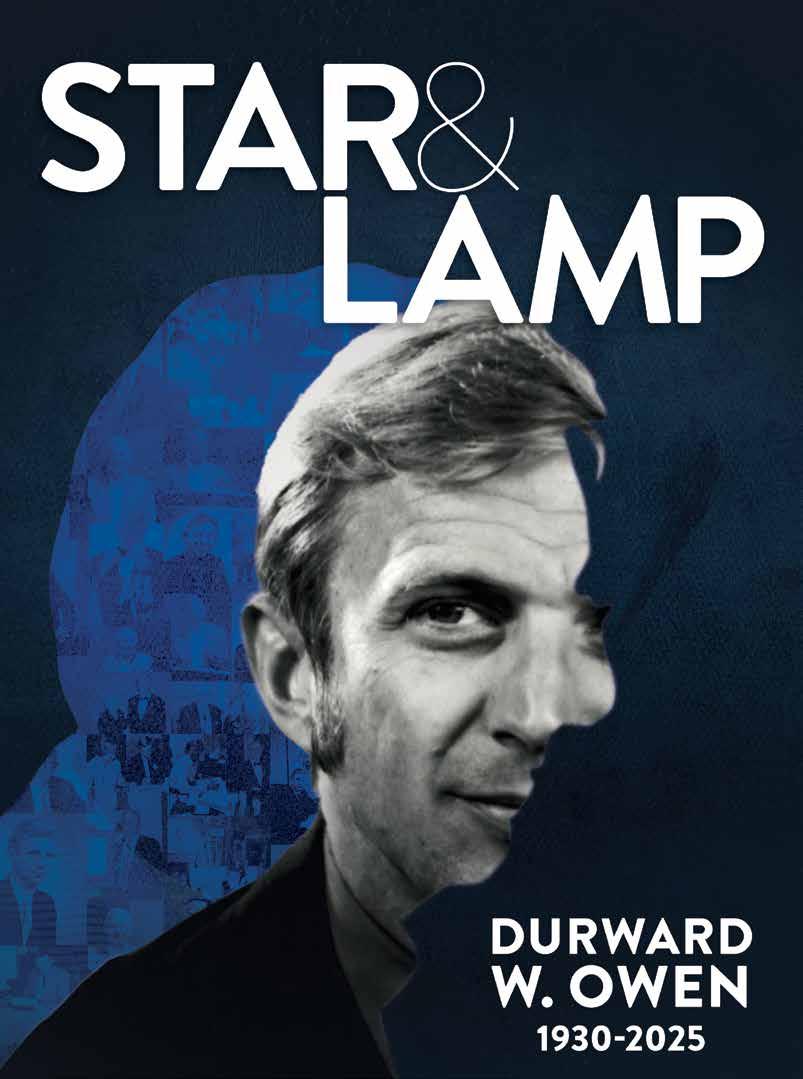

WITH GRATITUDE
This commemorative issue of the Star & Lamp was brought to life through the generosity of many contributors, each offering a unique window into Brother Durward W. Owen’s remarkable life and legacy.
A special thank you to those who took the time to be interviewed and share their memories of Durward.
Your openness made this issue more than just a timeline or set of facts, it infused these pages with authenticity and the genuine ability to share who Durward was, not just as an executive director, but as a man and as a brother.
Whether we spoke to you personally, discovered your words in Durward’s carefully curated archives or leaned on previously published writings, thank you. Because of you, this issue will inform, inspire and encourage brothers to live their lives the way Durward did, for generations to come.
Glenn Aspinwall, Gamma Kappa (Georgia Southern)
Thomas Atwood, Beta Eta (Florida State)
Chuck Barnard, Delta Delta (Truman State)
Ed Bennett, Xi (Roanoke)
Kelley A. Bergstrom, Alpha Omicron (Iowa State)
Joseph Brady, Epsilon Omicron (Villanova)
Jerry Brewer, Sigma (South Carolina)
Hon. Thomas Carter, Gamma Delta (Memphis)
Chad Coltrane, Epsilon Iota (UNC-Greensboro)
Stephen P. DePalma, Beta Alpha (NJIT)
Alan Duesterhaus, Zeta Epsilon (George Mason)
Gregory Elam, II, Beta (Presbyterian)
Jane Finney, Kappa Delta Sorority
William “Bill” Finney, Gamma Xi (Georgia Southwestern)*
Frank Havard, Gamma Phi (South Alabama)*
Jake Henderson, Beta Theta (Arizona)
Stuart Hicks, Kappa (UNC-Chapel Hill)
Nathan Hightower, Omicron (Alabama)
David Jaffee, Alpha (College of Charleston)
N. Kimball “Kim” Jepson, Alpha Theta (Michigan State)*
L. Paschal “Packy” Jervey, Mu (Durham)*
J. Ernest Johnson, Alpha Iota (Auburn)
W. Bernard “Bernie” Jones, Alpha (College of Charleston)*
Phil Josephson, Alpha Gamma Rho Fraternity
Ned Kirklin, Kappa Sigma Fraternity
David Lane, Omega (Purdue)
“To name people or even to name segments would be futile, for the whole of Pi Kappa Phi has made this a most thankful experience. How fortunate I have been. I care above all for those individuals who have made my days, my nights and my life a thing which I will always cherish, and it is to those members of Pi Kappa Phi and even those of other Greek persuasion, that I say, ‘Thank you.’”
An excerpt from “Amen,” a letter by Durward Owen published in the fall 1994 issue of the Star & Lamp.
Munsey Moore, Xi (Roanoke)*
David Morgan, Sr., Beta Omicron (Northwestern State)
David Owen, Delta Zeta (Appalachian State)
Michael O’Donnell, Alpha Epsilon (Florida)
Frank Parrish, Alpha Omicron (Iowa State)
Bruce Rogers, Chi (Stetson)
Thomas Sayre, Kappa (UNC-Chapel Hill)
J. Gunnar Schalin, Upsilon (Illinois-Urbana-Champaign)
Mary Scharfenstein Ebert
Ted Scharfenstein, Beta Beta (Florida Southern)*
William Sigmon, Alpha Sigma (Tennessee)
James Smith, Alpha Eta (Samford)
Dr. A.J. Lonnie Strickland, III, Omicron (Alabama)
Jay Stuckel, Beta Epsilon (Missouri-Columbia)
Jim Stump, Jr., Xi (Roanoke)
T.J. Sullivan, Alpha Psi (Indiana)
Dr. Phillip Summers, Alpha Psi (Indiana)*
Phil Tappy, Lambda (Georgia)
Mark E. Timmes, Alpha Epsilon (Florida)
Wally Wahlfeldt, Upsilon (Illinois-Urbana-Champaign)
Steve Whitby, Zeta Iota (Indiana-Pennsylvania)
Larry Wiese, Kappa Alpha Order
Alan O. Woody, Xi (Roanoke)*
Dudley Woody, Xi (Roanoke)
Bonnie Wunsch, Alpha Epsilon Phi Sorority
*denotes Chapter Eternal
HIS VOICE CALLED US IN...
IN LIFE, SOME PEOPLE BUILD ORGANIZATIONS, AND OTHERS BUILD PEOPLE. DURWARD OWEN DID BOTH.
When I arrived at the University of Arizona and discovered Pi Kappa Phi, I was searching for a fraternity that embodied community and friendship. For me, it was all about the people. I frequently say that I didn’t join a chapter house, parties or events; I joined people. I found men with whom I could become best friends and experience real, lifelong brotherhood.
Durward understood that better than anyone.
When I stepped into the role of chief executive officer in 2022, the reality and responsibility I had accepted became clear only when Durward Owen called me on the phone. His voice was steady and kind, and his call reminded me that I was not walking this road alone. From then on, his calls became a regular part of my life. Sometimes, they were filled with advice, other times, a listening ear and always, they were from a place of love and friendship.
I will admit something personal. Sometimes, I let his calls go to voicemail, not because I didn’t hear my phone ring, or because I didn’t want to talk, but because I knew one day I would want to hear his voice again. I still have many of those voicemails, and I listen to them when I need encouragement. I know that as the years pass, I will listen to them again when I’m feeling nostalgic, especially as I experience major Pi Kappa Phi milestones without him.
But I was not the only one who knew that steady voice. For decades, Durward called brothers on their birthdays. He sent handwritten notes and made phone calls simply to remind you that you mattered. At the end of every conversation, without fail, he said three simple words: I love you.
If you are like me, you wish you could hear those words from him just one more time.
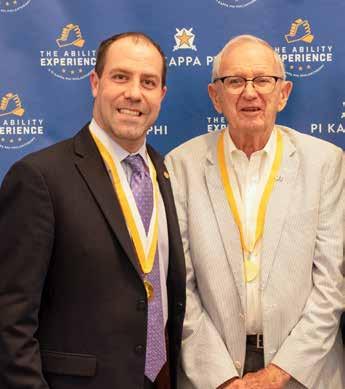

Durward devoted 35 years of his life to Pi Kappa Phi as our executive director, and his entire adult life to our brotherhood. Under his leadership, the Fraternity grew in chapters, in membership, in service, in reach and most importantly, in heart. The Ability Experience, born of his vision, stands as a testament to his belief that true leadership is service before self. He showed us all that leadership isn’t a title; it’s a calling. He turned the executive director role into a lifelong mission, rather than a stop along a career path. His commitment to Pi Kappa Phi provided consistency and laid the foundation for our upward trajectory over the past 60 years.
Mark Timmes carried that vision forward, building upon the foundation Durward laid for him. Now, as we stand on the shoulders of both men, it’s our responsibility to elevate Pi Kappa Phi for the next generation of brothers.
This issue of the Star & Lamp is our way of saying thank you. It holds stories and memories that remind us how one life lived with purpose can shape generations.
I hope that as you turn these pages, or simply remember Brother Owen, you let his life be your invitation to lead with compassion, choose connection over convention and let love be the measure of everything you do. That is how we honor him, not just in the words of this issue, but in the lives we lead moving forward.
Fraternally,

JAKE HENDERSON CHIEF EXECUTIVE OFFICER
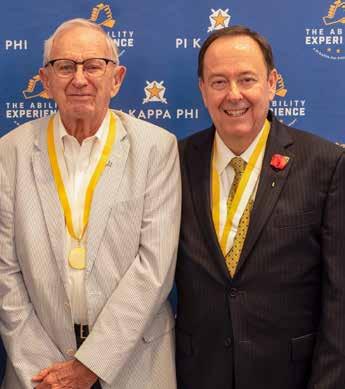
...HIS VISION CARRIED US FORWARD

DURWARD.
It’s rare in life to know someone so iconic, so impactful that, like Elvis, their first name alone is enough. For Pi Kappa Phi, and for me personally, that someone was Durward.
I first met him in 1978 as an undergraduate at the Southeastern Interfraternity Conference (SEIFC). My chapter at the University of Florida was underwhelming when I joined in 1976, but I quickly became deeply involved as a leader. My accounting degree, as I often joked, played second fiddle to my “major in fraternity.” When graduation approached, there was no question about where my passion was: I wanted to work for Pi Kappa Phi.
Durward’s hiring philosophy was simple. Find someone smart with a good work ethic, and they’ll figure it out. That’s how I ended up on staff. He gave me a chance, and, like so many others, the room to grow.
Durward led in his own unique way. He was famously frugal, dictating letters instead of making long-distance calls, and testing restaurant service by leaving a straw wrapper on the corner of the table to see if the server noticed. Some of us called him “Mr. Gratuity of North Carolina,” but for all his thrift, he was rich in wisdom, personality and belief in the power of fraternity. He also had his share of stories, almost too remarkable to be true. Baseball legend Willie Mays was his orderly during military service. He once tried to smuggle a Pi Kapp brother out of Castro-controlled Cuba. He played semi-pro baseball as a lanky catcher who could slap the ball for a single but never hit a home run.
More important than his quirks was his vision. He saw fraternity as more than a group of men who shared a ritual and chapter meetings. To Durward, it was experiential learning that prepared men for life. He embraced innovation and service beyond self, often describing Pi Kappa Phi as, “a very personal fraternity; a very personal experience.”
I once heard leadership defined as the ability to get others to follow, and boy, did we follow. We didn’t follow because he demanded it, but because he invested in us and inspired us. Durward built lifelong relationships with brothers and friends across the country, and those personal connections kept alumni engaged and, in turn, kept the Fraternity strong.
When I succeeded him as CEO in 1994, it was daunting. How do you follow a man who is synonymous with Pi Kappa Phi? In those early years, he would tell me, only half-kidding, “Don’t ruin my fraternity.” Over my 28 years spent running “his” Fraternity, he remained my go-to resource. Many times, he would simply listen. When he did give advice, it was often the same: “Do fraternity.”
Durward lived that sentiment, personifying the fraternal spirit, not just in Pi Kappa Phi, but across the interfraternal world. He paid his “interfraternal dues” through years of mentorship and service. Leaders from many fraternities and sororities counted him not only as a colleague, but as a friend.
In the later years, our relationship grew deeper. After my own father passed away in 2006, Durward became a father figure to me. Weekly, we would get together, talking about life, fraternity or sometimes just sharing barbecue as we watched college football. Those moments are a gift I’ll always treasure.
His legacy is woven into the very fabric of Pi Kappa Phi. We are forever indebted to his vision, his dedication and the profound personal impact he had on so many of us.
Godspeed, Durward. Godspeed.

MARK E. TIMMES CHIEF EXECUTIVE OFFICER EMERITUS
DURWARD
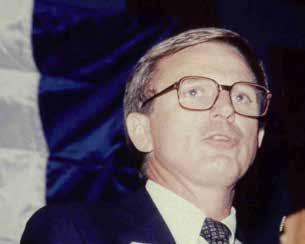
SUBMISSIONS
Send materials for publication directly to the creative director at the address or email address to the right. Letters to the editor will be printed at the discretion of the STAR & LAMP team.
We accept materials on an ongoing basis at: PiKapp.org/SubmitNews.
POSTMASTER
Send address changes to: STAR & LAMP
EMAIL ADDRESS: LetUsKnow@PiKapp.org
ONLINE NEWS: PiKapp.org/News PiKapp.org/SubmitNews PUBLISHER
(USPS
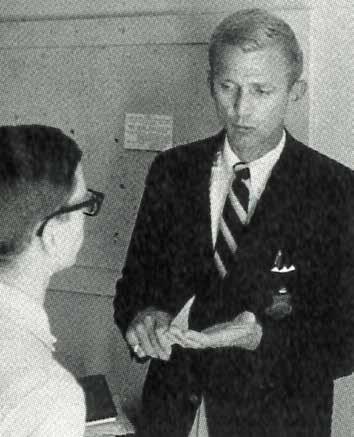
EDITOR-IN-CHIEF
Jake Henderson Beta Theta (Arizona) Chief Executive Officer
CREATIVE DIRECTOR Maureen Walker Kappa Kappa Gamma Chief Marketing Officer
MANAGING
GRAPHIC DESIGN Jordan Walton




Designed by Jordan Walton, this dignified portrait of the late Brother Durward W. Owen, Xi (Roanoke), is complemented by a mosaic of candid snapshots of Pi Kappa Phi moments, all faded gently into the background. Together, these images are a window into the brother he was: a thoughtful leader, anchored by memories created with all of us. To him, fraternity meant people. As you turn the pages, let this cover draw you into the story of a man who shaped this Fraternity, and whose influence will live on forever in all our Pi Kappa Phi moments.
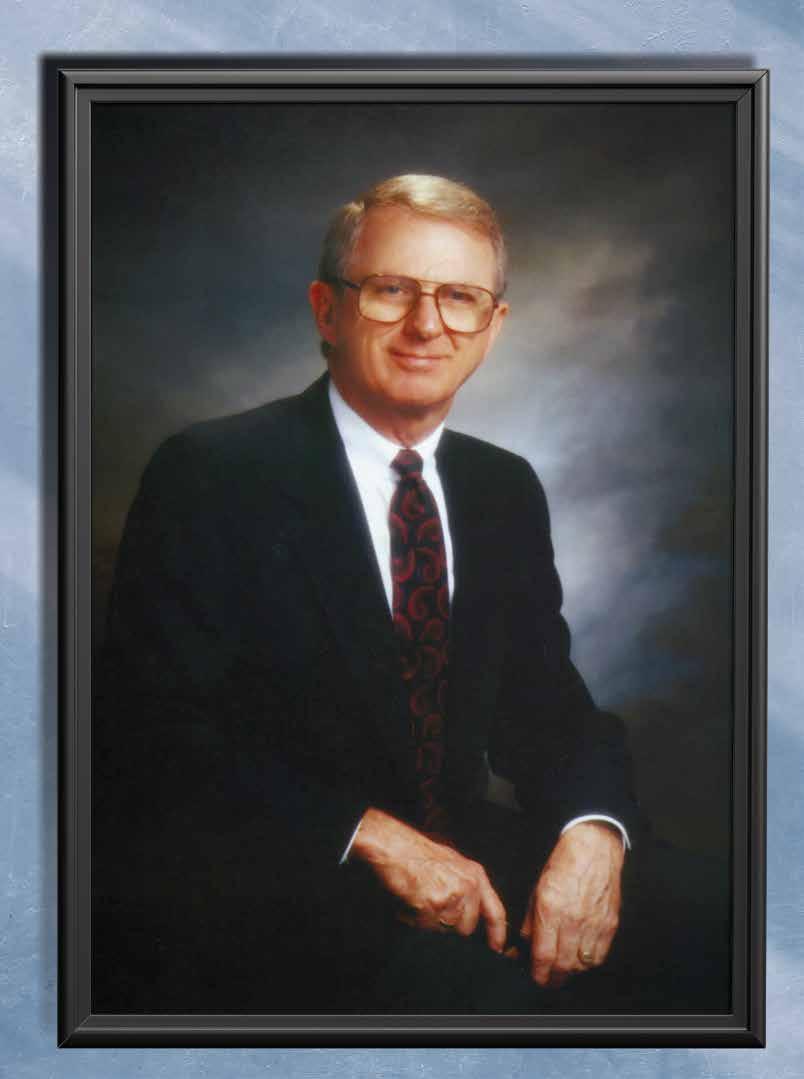
This special issue of the Star & Lamp is dedicated to the life and legacy of Brother Durward W. Owen, Xi (Roanoke), Pi Kappa Phi’s honorary Fourth Founder and executive director emeritus. With his passing on April 20, 2025, this Fraternity lost more than a leader: it lost a visionary whose values are forever woven into the fabric of Pi Kappa Phi. The era of expansion he spearheaded, the standards he set industrywide in risk management and the servant-leadership mindset he instilled continue to guide us. This issue exists because Durward’s life deserves more than an obituary; it deserves heartfelt reflection, celebration and most of all, gratitude.
As you turn the pages of this issue, you’re invited on a journey through decades of leadership that shaped not only an organization but the lives of countless individuals. More than a collection of articles, this issue is a narrative, stitched together by stories from those who knew him best and those who will carry forward his vision.
You’ll find the recollections of dozens of brothers and friends, reliving the laughter in his jokes, the wisdom in his mentorship and the warmth of a man whose faith and family were inseparable from his service.
Readers will travel from 1930, when Durward was born, to 1950 when he joined Pi Kappa Phi, to 1959 when he entered a career he thought would last only two years, but that became a calling. You’ll realize that Durward’s and Pi Kappa Phi’s stories are
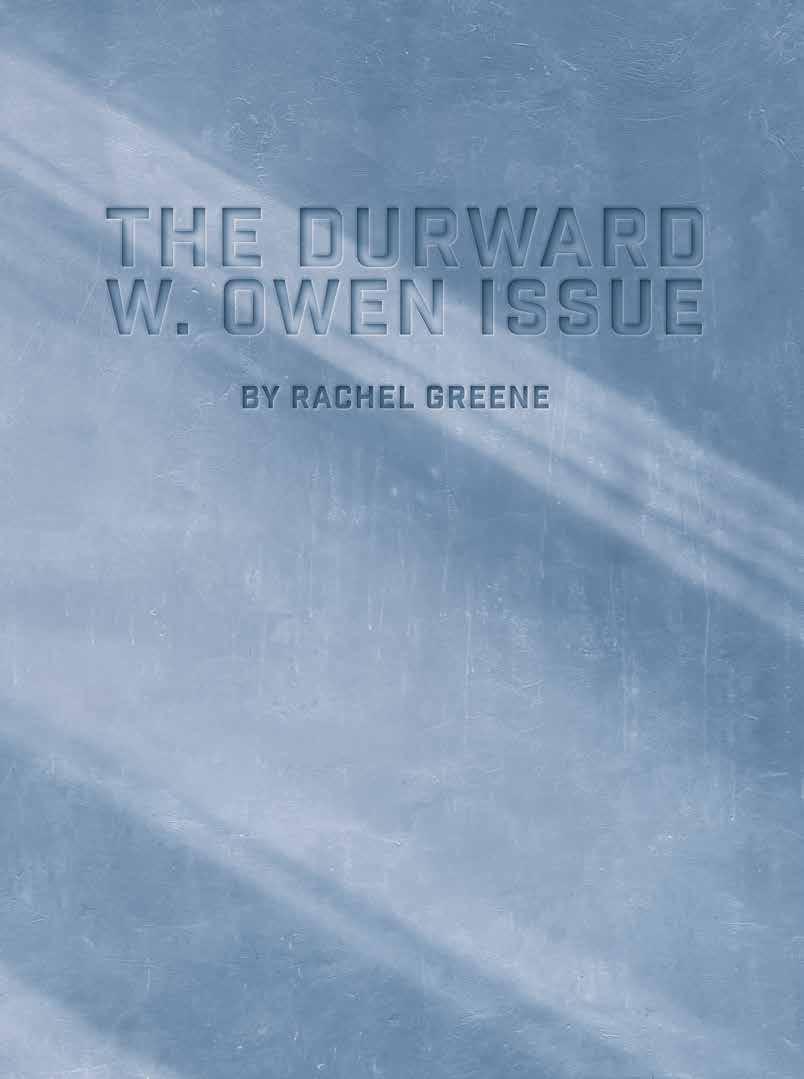
intertwined, and that one cannot be told without the other. Through his story, you will see how his legacy lives on in the hearts and habits of countless brothers and friends.
This issue has been crafted not just to remember Durward, or to inform you about him, but to capture the spirit of a man whose life anchored Pi Kappa Phi’s present and inspired its future. Reading it, we hope you’ll feel his presence, not just as words on a page, but in every undergraduate chapter’s purpose, every gathering of brothers and every act of service, all rooted in the foundation he built.
May this commemorative issue serve as both gratitude and inspiration, a timeless reminder to current and future Pi Kappa Phi brothers to follow in Durward’s footsteps, uphold his ideals and continue to model his legacy of leadership, service and above all else, brotherhood. While Brother Owen may have entered the Chapter Eternal, his work and influence are alive every day in his fraternity. We hope these pages inspire you to act and deepen your appreciation for the bonds of brotherhood shared within Pi Kappa Phi.
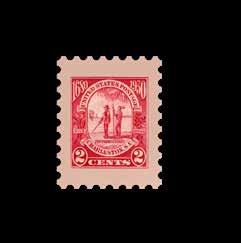
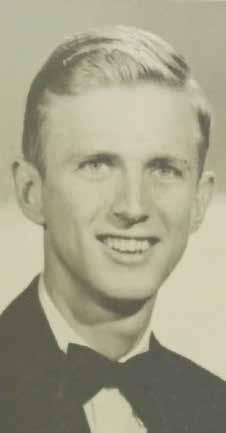
Their home on Stewart Street was humble but overflowing with love and lessons: show up, do the right thing and look out for your neighbors. The family’s weeks were marked by long shifts and Sundays spent in the church pews in the Belmont Christian Church. When the Owen family’s second son, Dotson, was born in 1939, Durward instinctively took to the role of big brother. In this close-knit household, the ideals of service, faith and responsibility first took root, which would forever shape Durward’s view on life.
As a young boy, Durward found early glimpses of brotherhood among his neighborhood friends. In the
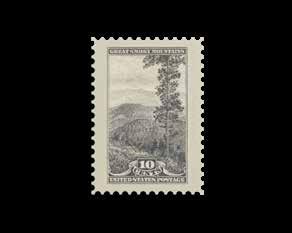

watched his parents model at home. By the time Durward reached high school, his dedication to the sport earned him a scholarship to Roanoke College, opening the door for him to become a firstgeneration college student.
Durward began his college journey at Roanoke College in 1949, attending for nearly a year and a half before the world had other plans. In those early semesters, he connected with a group of men whose shared values and quiet ambition mirrored his own. On October 29, 1950, he joined the Xi Chapter of Pi Kappa Phi. The men of Xi Chapter weren’t the flashiest on campus but they were steady, driven and grounded in shared ideals. To Durward,
the values these men held dear felt familiar; they believed in commitment, character and being part of something greater than themselves. In them, he saw something familiar: brotherhood, yes, but also accountability. The kind of group that expected something of you and helped you live up to it.
Though his time with the chapter was initially brief, the experience made a strong impression. The ritual, the camaraderie and the sense of purpose resonated with him deeply. But, in 1951, with the Korean War escalating, like many young men of his generation, Durward felt called to serve his country. He set aside his college dreams and fraternity membership and enlisted in the United States Air Force.
Stationed at Sandia Air Force Base in New Mexico, Durward worked with the Armed Forces Special Weapons Project, helping maintain fifth-generation nuclear weapons such as the M-5 bomb. He held a Class Q security clearance, and therefore, a level of trust and responsibility that made him an asset to the Air Force, a man they did not want to lose. The Air Force had plans for him, but Durward had a different path in mind.

He felt a dissonance between his assignment and the type of service he believed in. He respected the work and his duty to his country but sensed a different calling. In an almost unheard-of move, Durward requested a transfer to the United States Army. Transfers between branches were rare, and approvals even rarer, but Durward understood that sometimes, the right door could be opened not because of policies but by people.
No one could have predicted just how far that commitment would carry him, or how far he would carry it.
as a page at the Virginia State Capitol, and stayed at the home of the then-State Attorney General Harvey P. Apperson, Sr. So, Durward guessed, Major Apperson might be his son.
With this information in mind, Durward arranged an appointment with Major Apperson. Upon arriving, Apperson was curious why he had made the meeting, and Durward told him about his desire to transfer. Apperson replied that a transfer was impractical for many reasons. Apperson asked once again, “Why did you come to see me?” Durward responded, “Because you are a Virginian and so am I.” By the end of their conversation, Apperson had arranged Durward’s transfer from the United States Air Force to the United States Army. It wasn’t logic that swayed Apperson, but shared roots, mutual respect and the sincerity of a young man who knew where he belonged. On October 29, 1951, Durward received his honorable discharge from the Air Force and stepped into a new chapter with the United States Army.
When his active service in the Army ended in 1952, Durward returned home, not as a wide-eyed teenager anymore, but as a man shaped by service, structure and sacrifice. College was still calling, and once again, he would answer. Pursuing a political science degree, he returned to campus not as a freshman looking to find his way but as someone already walking
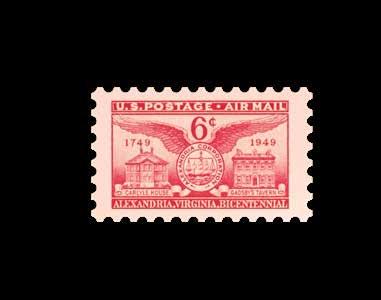
college life for the second time with a new perspective and focus. This time, he didn’t just rejoin campus life; he became a leader within it. He reconnected with his brothers in Pi Kappa Phi and soon stepped into a greater role, serving as the chapter’s archon.
The Xi Chapter had been struggling to find its footing on campus. Under his leadership, the chapter found new energy and direction. Durward helped refocus the group’s efforts, encouraged campus involvement and invited feedback instead of issuing orders. He mentored younger members, not by lecturing them, but by walking alongside them, grounded in the belief that lasting impact comes from collective effort. In a letter he wrote to the national office as archon, he showed vulnerability in saying, “This is another one of those letters in which I am asking for a favor,” never too proud to ask for help as he worked toward positive change.
By the time he graduated in 1955, the Xi Chapter had transformed. It was stronger, more unified and poised for continued growth. So was Durward.
After graduation, Durward remained in Roanoke and supported the chapter when he could, giving his time, wisdom and occasionally the money from his own wallet to help Xi keep growing stronger. His constant presence reminded the undergraduate brothers that brotherhood doesn’t end when college does; it evolves.
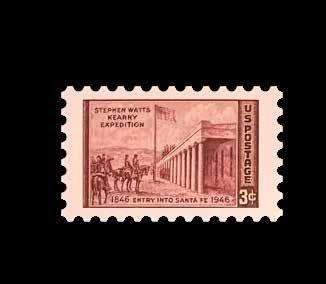
No one could have predicted just how far that commitment would carry him, or how far he would carry it. In hindsight, the signs were there: a man who leveraged connections to achieve his goals, a catcher who never missed a game with his teammates and a chapter leader who saw potential when others were complacent.
The foundation was in place.
The next chapter of Durward’s story –and Pi Kappa Phi’s – was just beginning.
by Rachel Greene
Long before their names became forever woven into the heart of Pi Kappa Phi, Durward and Connie Owen were just two teenagers in Roanoke, Virginia. They were two people whose partnership would grow into a lifetime of love, loyalty and shared purpose. Together, they built a life, a family and a legacy of service that shaped generations of fraternity men.
Durward Owen and Hazel “Connie” Manning met at Jefferson High School in Roanoke, Virginia. It wasn’t love at first sight, but something they unexpectedly fell into. “Durward and I met when we were both at the same high school,” Connie recalled. “He dated a good friend of mine very steady and we went to the same church. We were very, very good friends, and we each broke up with the people we were dating at the same time and started going together for some reason or other.”
They began “going together” in 1948, and their relationship grew stronger as Durward joined the Xi Chapter of Pi Kappa Phi at Roanoke College in 1950. Connie recalled the simpler, earlier days: “When we were dating, in his first year there, he had a little car, a little Chevrolet, I think. It had one seat in the front, and when I rode it in, I had to sit on a box.”
Both Durward and Connie were raised in working-class families that valued faith, discipline and commitment, qualities that would serve them well in the coming years.
Just 10 days after Durward returned from military service in 1952, the couple married. Eleven months later, he was given an early discharge to return to college. Together, they began building a life shaped as much by their faith in one another as by
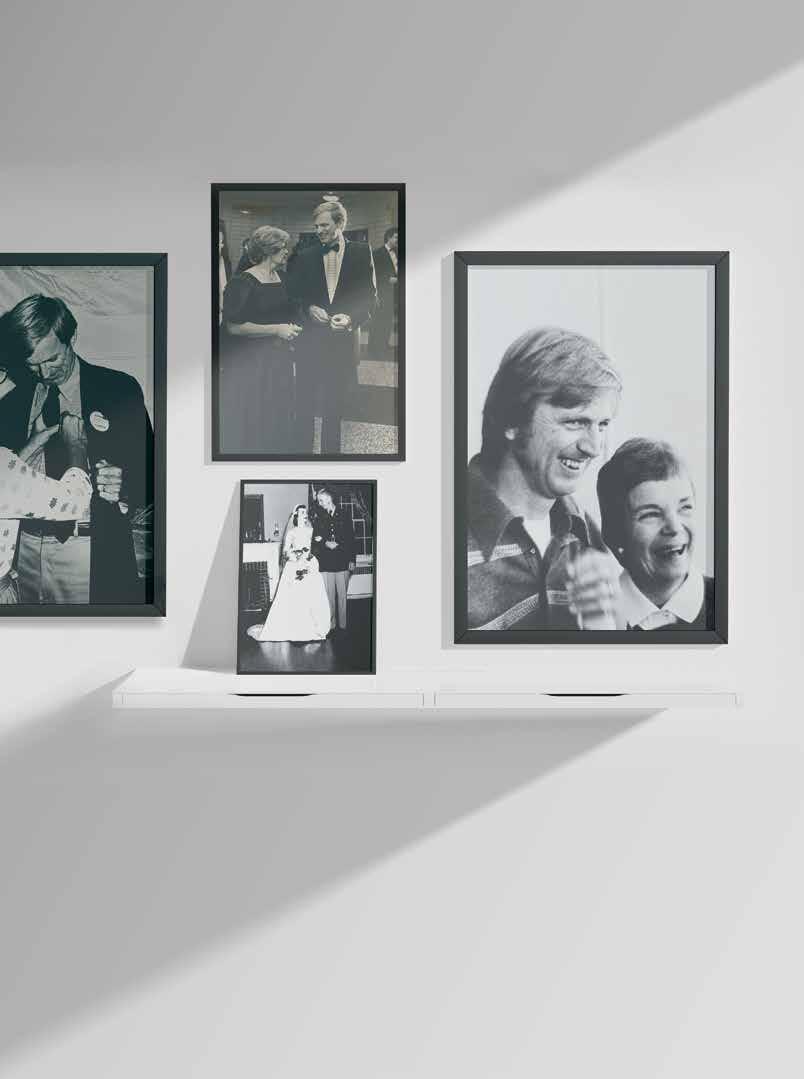
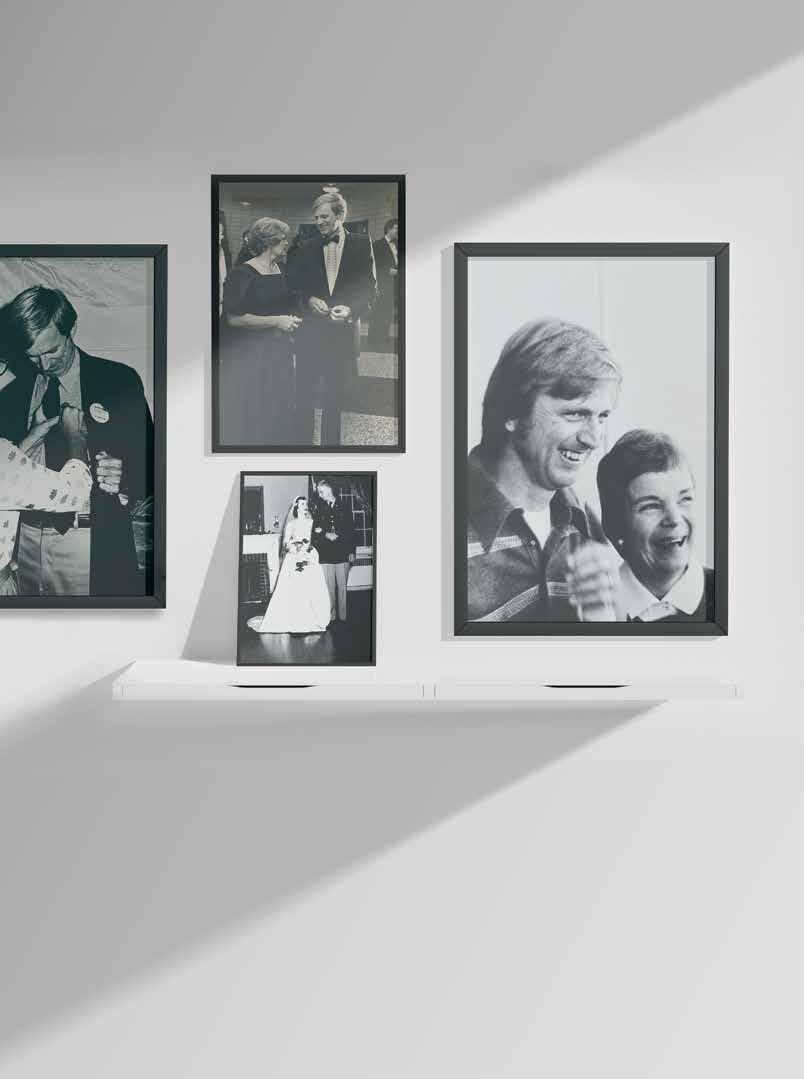
Based in part on an interview with Connie Owen conducted in 1979 by the late Frank Havard, Gamma Phi (South Alabama)
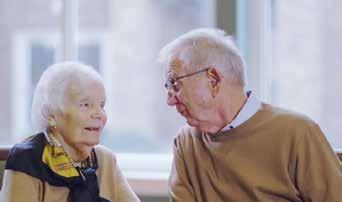
the calling that would eventually lead them into the heart of Pi Kappa Phi.
“After we were married and back in school, the Fraternity was our social life,” said Connie. Pi Kappa Phi became their community, plain and simple, a constant that remained until the end of Durward’s Roanoke College years.
After graduation, the Owens stayed briefly in Roanoke, where Durward began his career, and the couple welcomed their first child. But life soon called them south to Sumter, South Carolina, when, with Connie’s blessing, Durward accepted the opportunity to lead Pi Kappa Phi. Moving with a baby in tow wasn’t easy. They left family, familiarity and comfort, trading the known for the unknown. Still, Connie made Sumter feel like home, not just for her family, but for countless Pi Kappa Phi brothers who passed through each summer.
She made sure all of her
Pi Kappa Phi Fraternity men, or her kids, as she called us, were well fed and taken care of. She was so special.
Durward would later reflect on Connie’s impact with unmistakable gratitude:
“Connie played a much larger role in the development, growth and success of Pi Kappa Phi than most would believe and certainly more than she has been given credit for. Her ability and willingness to put up with and indeed support my excessive fraternity work ethic has made my contribution possible. Without it, the two-year projection would have been it. Those who have been directly influenced by her character have been able to transfer that image and relationship into their personal and professional lives. I believe that these people have recognized that when all else failed, Connie would be there if they needed her.”
Together, the Owens showed thousands of young men what it means to live a life of values and service, not through grand gestures but through decades of devotion to each other, their family and the brotherhood.
In addition to being Durward’s perfect partner in life, Connie became a surrogate mother to countless traveling staff members over the years, a gracious host for visiting young men and a steadying constant in a role filled with movement and change.
“For all of us who worked for the Fraternity, Connie was our mom away from home,” said Wally Wahlfeldt, Upsilon (Illinois-UrbanaChampaign). “Hearing Connie say, as she often did, ‘Bless you,’ never failed to brighten your day.”
Chuck Barnard, Delta Delta (Truman State), remembered her as the first true Southern Belle he ever met. “She made sure all of her Pi Kappa Phi Fraternity men, or her kids, as she called us, were well fed and taken care of. She was so special.”
When asked if she was happy with the life they had built, Connie replied without hesitation, “Oh, it’s been glorious.” She continued, with a laugh, “I love him very, very much. Yes, there are times, and I don’t hesitate to say this, sometimes I am fed up to here, when I am so sick and tired of fraternity... but that is not really true.” If she could go back in time and choose to support Durward taking the executive secretary role and move from Roanoke to Sumter again, Connie said, “I would. I thoroughly enjoyed it. I really think in raising a family, it has been more of a help, having these fraternity men come through our home each year.”
In 2014, Pi Kappa Phi introduced the Connie Owen Order of the Rose Award to recognize spouses of Pi Kappa Phi brothers who have exemplified sustained involvement that advances the Fraternity’s mission. It was only fitting that Connie herself was the first recipient.
“We went there really thinking it was temporary,” Connie said. “But wherever Durward was, that’s where I wanted to be.”
As Durward poured himself into the growing needs of Pi Kappa Phi, Connie stood firmly beside him, not in the background, but in partnership. Their home became a haven, a constant for many men in their roles at Pi Kappa Phi, which were filled with constant travel and change. Connie offered warmth and wisdom; Durward, vision and guidance. Their strengths balanced each other and embodied the Fraternity’s values in action. They opened their home and their lives to countless young men who would never forget what that meant to them at the time.
In many ways, the award does more than just honor a spouse; it honors the idea that Pi Kappa Phi brothers often don’t build their legacies alone. It recognizes those steadfast partners, like Connie, who walk beside Pi Kappa Phi’s leaders, making their work possible. For Connie and Durward, the walk was always side-by-side.
Connie Owen passed away on September 23, 2020. Durward Owen reunited with his beloved wife on April 20, 2025. Together again, their legacy endures in the lives they touched and the brotherhood they helped shape.


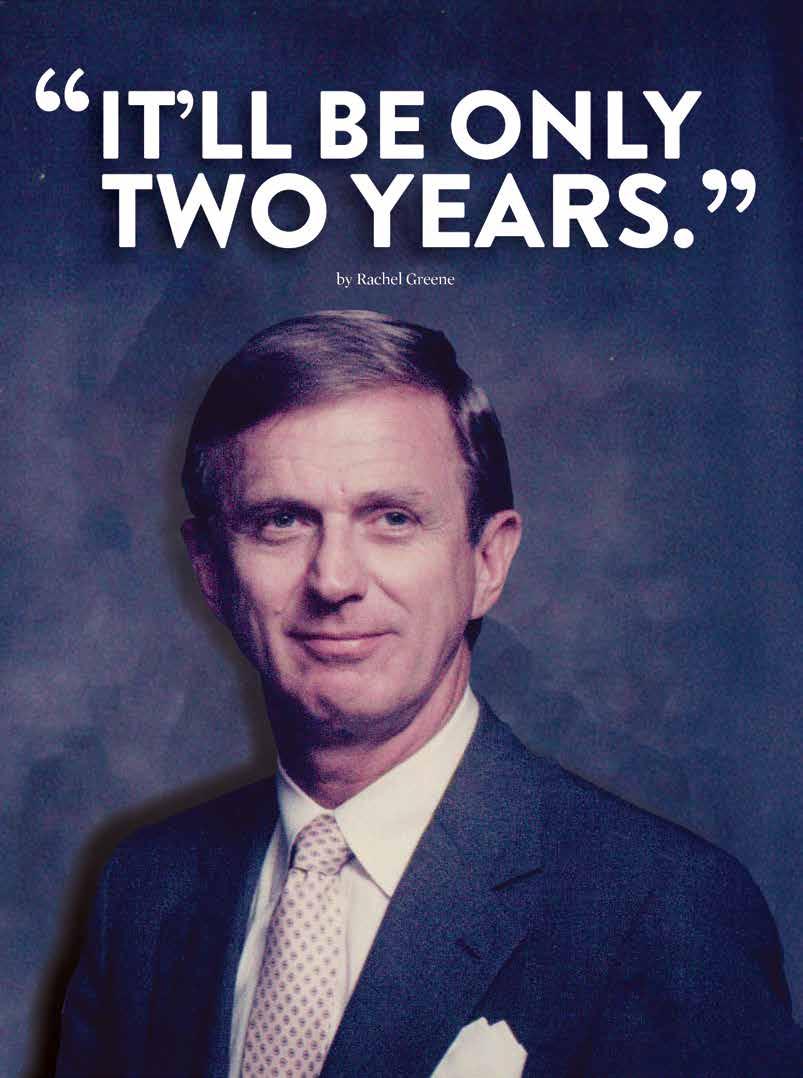
“I promised Connie I’d take the job at Pi Kappa Phi for only two years. She said it was the longest two years of her life.”
- Durward Owen
When Greg Elam, Beta (Presbyterian), informed the National Council in January of 1959 that he would step down from his role by September 1, 1959, the search began for his successor. At this time, Bernie Jones Jr., Alpha (College of Charleston), was serving as National President. In the National Council’s conversations about who should fill Elam’s vacancy, Bernie remembered two young alumni from the Xi Chapter (Roanoke) whom he had met when he visited the chapter on two separate occasions, while each young man was serving their respective term as archon: Bobby Thomas and Durward Owen. Jones decided to see if either of these promising young brothers would be interested in the position of executive secretary. He tasked the newly elected National Historian, a young man by the name of Packy Jervey, Mu (Durham), with reaching out to each of them.
First, Packy contacted Bobby, who was then the personnel director for the new
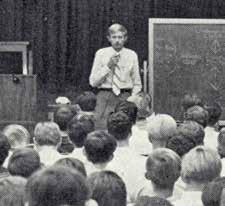
General Electric plant in Salem, Virginia. While he was flattered by the offer, he had no interest in leaving his current role or taking on the daunting task of being executive secretary.
Later that day, Packy called Durward’s home and spoke with Connie, who directed him to Durward’s whereabouts: the Xi Chapter house. So, Packy drove to the house, where he was told a group of alumni had gone to a nearby bar. There, he found Durward, and over a pitcher of beer, the two discussed the future of Pi Kappa Phi Fraternity.
Just a few weeks later, Packy flew Durward to the National Council meeting in Louisville, Kentucky, at the Brown Hotel, where Durward, swayed by the Fraternity’s great need and the idea that he might be able to help save it, tentatively agreed to move to Sumter, South Carolina, on July 1 of that year to work for Pi Kappa Phi for a period of two years. After those two years were up, he would leave Pi Kappa Phi to a successor and return to his hometown of Roanoke, Virginia. Or, at least, that was the plan.
From that hotel in Louisville, Durward called Connie, told her where Sumter was, explained the opportunity he had been offered and famously told her, “It’ll be only for two years.” She agreed, and with her blessing, Durward accepted the role.
Durward spent the next three months settling his affairs; selling his two service stations, sporting goods shop and automobile leasing operation.
Yet even then, Durward saw Pi Kappa Phi not for what it was, but for what it could become.

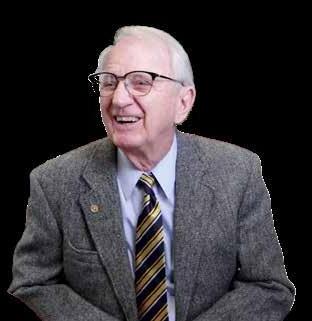
At Packy Jervey’s insistence, Durward flew to Louisville, Kentucky, and agreed to serve as executive secretary for two years.
After clearing a lingering undergraduate dues balance, Durward became an alumnus in good standing and began serving as executive secretary on July 1.
Hosted the first Pi Kapp College, alongside predecessor Greg Elam, at Camp Burnt Gin. 102 undergraduate brothers attended.
Launched Pi Kappa Phi Properties to support affordable, long-term housing solutions for undergraduate chapter members.
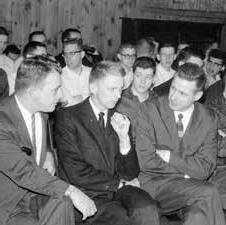
(continued from page 13)
After his affairs were in order, the Owen family, which at that time consisted of Durward, Connie, their daughter Melissa and their son David, headed to Sumter. Durward reported to work on July 1, 1959.
Durward’s early days in Sumter were modest by any standard. He inherited a bare-bones national office, a storefront with less than 700 square feet, one full-time office manager and a part-time assistant. The Fraternity had only 46 active chapters and a financial base barely sufficient to maintain their limited operations. Yet even then, Durward saw Pi Kappa Phi not for what it was, but for what it could become.
His solution to the crisis at hand was simple: grow.
In the face of declining national fraternity trends during the turbulent 1960s and 1970s, Durward doubled down on expansion. Drawing inspiration from a Ford executive’s lesson on the power of incremental gains, he implemented a nationwide strategy focused on both growth and chapter development. He set a goal to expand by three new chapters a year, and by the end of his tenure, Pi Kappa Phi had a roster of 136 chapters and six associate chapters, growing by 208 percent from when he had inherited it.
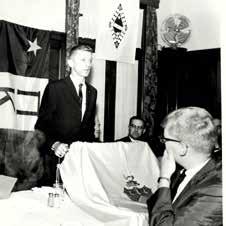
Durward also recognized that with growth came the need for infrastructure. In 1965, he led the relocation of Pi Kappa Phi’s national headquarters from Sumter to Charlotte, North Carolina; a move that would provide greater access to transportation, resources and a growing alumni network. It was the first of many strategic decisions that would shape the modern Fraternity.
With no surplus funds, Durward launched what would become a masterclass in grassroots fundraising, raising $56,000 in one year through hand-written pledges, brother-to-brother appeals and personal commitments, including $250 of his own money.
His vision extended beyond securing an office space; he wanted to secure the Fraternity’s future. He helped establish Pi Kappa Phi Properties, giving chapters access to housing support and building homes for brotherhood nationwide. He revitalized the Pi Kappa Phi Foundation, not just as a fundraising arm for the Fraternity, but as a lasting source of scholarships and resources for brothers. And, he helped found The Ability Experience, originally called P.U.S.H., to serve people with disabilities, placing servant leadership at the heart of Pi Kappa Phi.
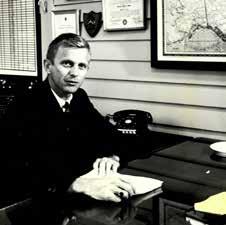
Long before risk management became common practice, he spearheaded industry standards emphasizing safety, responsibility and accountability. He took the hesitation and criticism of others in stride, understanding that meaningful change often meant leading where others had yet to follow.
Still, he remained humble. He often said that he owed the Fraternity a debt for what it had given him, not the other way around.
Durward never saw his role as a job. It was, in his words, a “labor of love.” He built a career on the belief that Pi Kappa Phi could do more than exist; it could matter. And in doing so, he left an imprint on the Fraternity that will endure for generations.
His leadership extended far beyond strategy; he cultivated a culture within the National Headquarters that reflected the very values Pi Kappa Phi sought to instill in its members. Over the years, he mentored and empowered 110 staff members, many of whom went on to lead within the Fraternity or make their mark elsewhere in higher education and nonprofit work. He led with high expectations and a deep sense of care — part coach, part father figure. Former staff recall how he balanced humor with
Elected CFSA, now FEA (Fraternity Executives Association), president, promoting shared values and interfraternal unity during a time of nationwide unrest.
Championed the creation of P.U.S.H., now The Ability Experience, a national project supporting people with disabilities and developing servant leaders.
Founded the Nu Phi Society, linking alumni engagement to the Fraternity’s “non-fraternity” origins and fostering Foundation support.
Helped establish FIPG (Fraternity Insurance Purchasing Group), revolutionizing fraternity risk management and accountability across the Greek world.
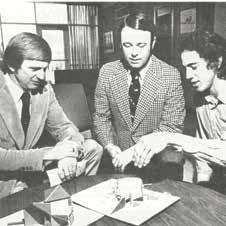
humility, discipline with trust. He knew when to give direction and when to simply listen. Durward believed in hiring people with heart and giving them room to grow, and in doing so, he built relationships that lasted long after his employees’ tenures at Pi Kappa Phi. Connie, always by his side, was at the heart of that workplace family, hosting staff dinners, welcoming new employees and offering the same quiet strength and warmth that she gave to Durward. Together, they created more than an office. They created a home.
After the longest two years known to man, Durward officially retired on August 15, 1994 – just before his 64th birthday. But he never truly left Pi Kappa Phi. He remained a teacher, a mentor and a brother to all who would carry the mission forward.
As he once said of his time in office: “I want to make it clear — I have always received more than I have given. This has never been an even relationship.”
Durward gave everything he had to Pi Kappa Phi, but he still believed that it had given him more. That’s just the sort of person, and brother, that he was.
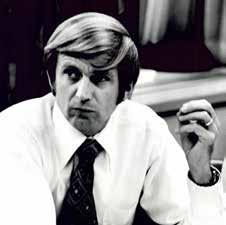
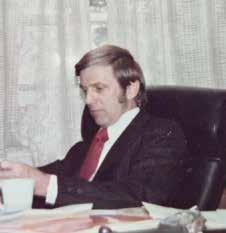
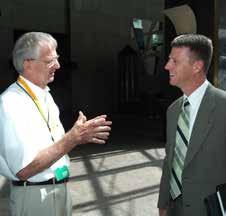
I want to make it clear — I have always received more than I have given. This has never been an even relationship.

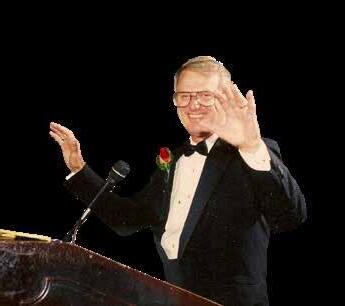
Retired after 35 years as Pi Kappa Phi’s chief executive, having led the Fraternity through immense growth, change and challenge.
Named Pi Kappa Phi’s Honorary Fourth Founder, though he humbly insisted that title belonged to those present in 1904.
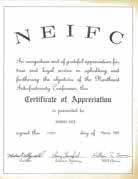
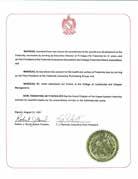
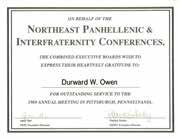
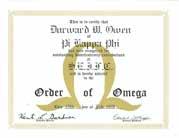
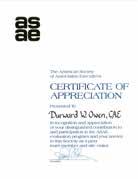
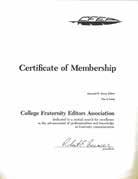
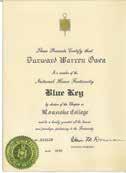
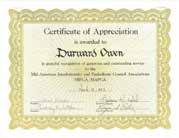
A BROTHER TO ALL
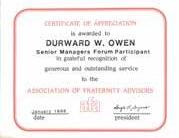
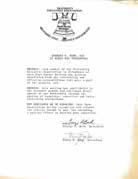
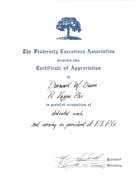
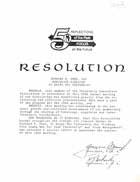
DURWARD W. OWEN’S INTERFRATERNAL IMPACT
by Rachel Greene
In the world of interfraternal leadership, few names carry the weight of Durward W. Owen. Fewer still carry it with such humility.
What began as his commitment to the Xi Chapter became a national voice for servant leadership, values-based brotherhood and lifelong commitment. As the executive secretary and later executive director of Pi Kappa Phi, Durward redefined what it meant to lead a fraternity.
When Durward became executive secretary in 1959, he asked Bernie Jones, Alpha (College of Charleston), then National President, if he should attend the upcoming National Interfraternity Conference (NIC) meeting. To his surprise, Jones said Pi Kappa Phi had
never been involved in the interfraternity world. The Fraternity’s leaders had never attended conferences or meetings like this. Perhaps though, Jones thought, if Durward were interested, now would be a good time to change that.
He was interested. So, in December of 1959, Durward headed to New York City and attended the NIC meeting. This was a big step for a six-month-experienced executive secretary, heading to New York City, the greatest metropolis he had visited at this point, and staying at the Waldorf Astoria. This was the beginning of a new chapter, not just for Durward, but for Pi Kappa Phi.
That first meeting introduced Durward to the interfraternal world, and to individuals who would become lifelong mentors. From there, his involvement deepened.
A few years later in 1960, Durward had to decide if attending the joint College Fraternity Secretaries Association (CFSA) and College Fraternity Editors Association (CFEA) meeting would be a worthwhile expense for the Fraternity to take on. He wasn’t sure if the actual learning experience was worth the cost of attending.
He once again went to Bernie for advice, to which Bernie told him that attending could serve two purposes; either confirming that the work Durward was doing was already right, and that if he worked hard enough, he could have an influence on other organizations.
In 1962, Durward was asked to serve on the CFEA board. Five years later, this led to his being nominated and elected president for the 1967-68 term,
the first Pi Kappa Phi to hold office in an interfraternal association. Durward would later credit this presidency, which occurred very early in his career, with leading him to engage many very important people from the interfraternal world with Pi Kappa Phi.
After a successful term as president of CFEA, Durward was elected president of CFSA in 1973, during a time when many fraternities were withdrawing from the National Interfraternity Conference (NIC). His leadership helped stabilize interfraternal cooperation during one of its most uncertain eras.
The 1970s brought nationwide turmoil, with Vietnam War protests, antiestablishment sentiment and campus restructurings all taking their toll. Fraternities lost direct access to senior campus administrators, replaced by entry-level Greek advisors, many of whom lacked interfraternal experience and were not Greek themselves.
He was always a good ear; he made you feel seen and heard. He was truly one of my favorite people out there.
Durward had a vital hand in shaping the direction of the NIC, the Fraternity Executives Association (FEA) and numerous additional interfraternal coalitions. He mentored new executives, advised national presidents and boards and helped bring competing organizations to the same table, reminding them that shared values mattered more than their separate letters.
At the 1976 NIC meeting in Williamsburg, Virginia, when the NIC invited hundreds of Greek advisors to meet but failed to plan programming for them, Durward took matters into his own hands, gathering a few of them into his hotel room and organizing an impromptu luncheon. From that moment came the formation of the Association of Fraternity Advisors (AFA), an organization still serving the field today.
Durward didn’t stop there. For more than a decade, he advised regional interfraternal groups like the
Southeastern Interfraternity Conference (SEIFC) and helped revive the Northeastern Interfraternity Conference (NEIFC), boosting Pi Kappa Phi’s presence in the Northeast.
And then came the 1980s. With the national drinking age rising from 18 to 21 years old, many Greek organizations were searching for a solution to the growing problems of alcohol abuse and social mismanagement. Durward spearheaded what may have been his most influential interfraternal contribution: the Fraternity Insurance Purchasing Group (FIPG). The group was created to establish risk management guidelines for students and fraternity chapters and to attempt cooperative buying of liability insurance. Under the FIPG policy, the purchase of alcohol by chapters was banned; parties became invitation only and alcohol consumption was required to comply with all applicable laws. In the area of insurance, Durward was eventually successful in establishing the cooperative buying of liability insurance through the formation of the Fraternity Insurance Trust in 1992, and later, FRMT, Ltd., in 1996.
Spending more than three decades in his role, Durward became a trusted presence not only within Pi Kappa Phi, but across the Greek community. His leadership was respected, but even more than that, it was formative in an era of uncertainty. His approach was never transactional; he never sought power and never led with ego. Instead, Durward led by example, with a deep belief that fraternities could be a force for good in young men’s lives. He challenged the status quo when he knew it needed to be challenged, but he did so with a tone that invited others to listen and reflect, not one that scolded or ostracized them. His approach to change ensured that his influence lasted in policies, programs and the people around him.
To many, Durward was more than a Pi Kappa Phi icon, he was a brother to the entire Greek movement. Long before collaboration was a buzzword, Durward modeled it with grace, consistency and humility.
His impact was affirmed by honors from across the Greek world, but while his career is what is most evident on paper, his impact can be seen most vividly on the people who he touched within the interfraternal world, people like Bonnie Wunsch. Bonnie, longtime executive
director of Alpha Epsilon Phi Sorority, first met Durward in the late 1980s when women were admitted into FEA. “I don’t remember my career without Durward being a part of it,” said Bonnie. “I’ve been involved in so many organizations where he truly left a mark and led the way, so to say that I considered him a mentor would be a mild understatement.”
Bonnie is one of many who saw Durward not just as a colleague, but as a personal and professional role model. “Durward kind of took me under his wing as a new professional,” she said. In a field dominated by tradition and male voices, Durward stood out for his warmth, mentorship and inclusivity. “I have no doubt that Durwood had some role in women joining FEA,” she said. “He may have had reservations at first, but he never let them show. Once we were members, he welcomed us completely. As old fashioned and Southern as he was, Durward still respected the women professionals and treated us as peers.”
The impact he had on others often extended far beyond the job. “Durward and Connie both became friends, and both had an influence on me as an individual and as a professional,” said Bonnie. “My husband and I made multiple trips to Charlotte just to see them; they meant so much to us.”
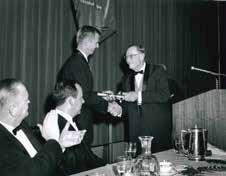
Their friendship was filled with warmth, care and inside jokes. It reflects the same genuine attention Durward gave not just to Bonnie, but to young professionals across the Greek world. “He welcomed everybody with a smile and a hug,” she said. “He was always a good ear; he made you feel seen and heard. He was truly one of my favorite people out there.”
While those in the Greek world benefited from Durward’s presence, Pi Kappa Phi benefited just as much from his willingness to branch out of his own Fraternity.
THREE WORDS. ONE ENDURING LEGACY.
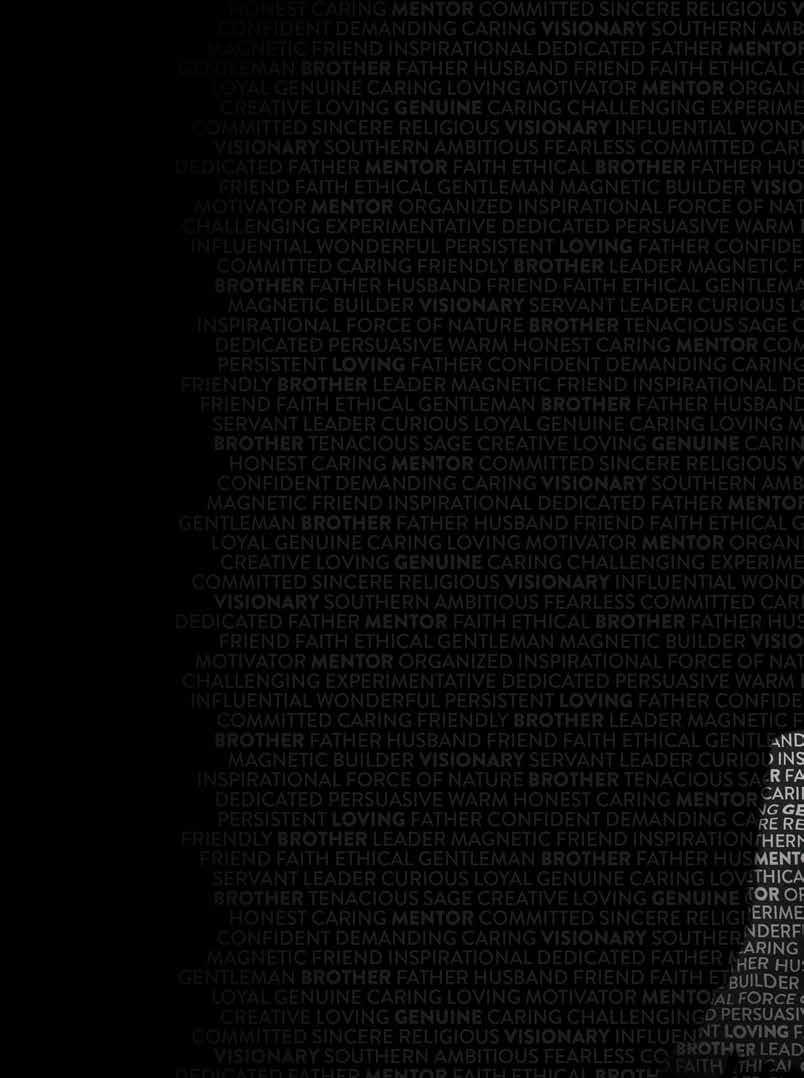
When asked to describe Durward Owen in just three words, most people paused, not because they couldn’t think of any, but because narrowing it down to just three felt almost impossible. How do you summarize a man who influenced generations, led with conviction and left a lasting impact on everyone he met?
And yet, they tried. Thoughtfully and carefully, they searched for words, not to list his accolades or titles, but to capture the way he made them feel.
Some spoke of his vision and persistence. Others reflected on his deep faith, curiosity and love. Again and again, specific words rose to the surface.
This collection of words is a tribute, but it’s also more than that. It’s a tapestry, each word a thread in the legacy of a man who shaped Pi Kappa Phi. Together, they form the mosaic of someone who was never content to simply lead. He built. He challenged. He loved. He believed.
In all that he was, he helped Pi Kappa Phi become a reflection of these very same words.
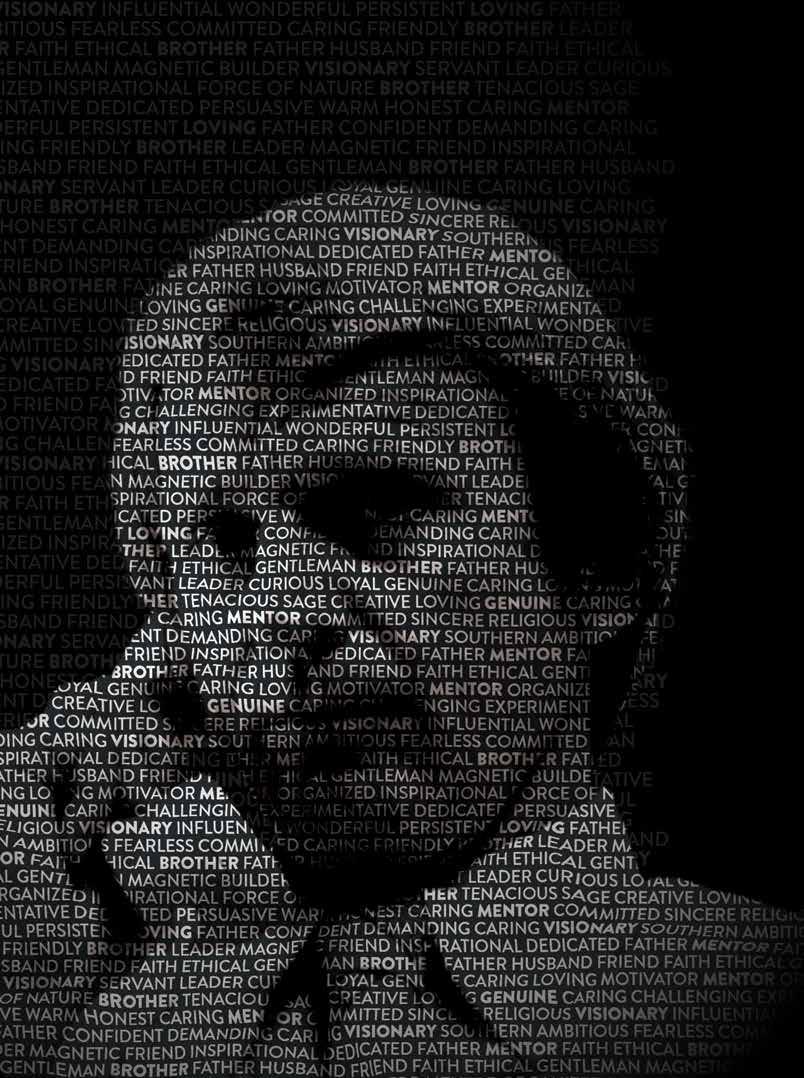
by Rachel Greene
Durward Owen had many skills and qualities that made him the man he was, and the man admired by so many, but perhaps most formative to Pi Kappa Phi was his ability to mentor others. He had a way of holding up a mirror and showing you not who you were, but who you could be. He saw potential in you before you saw it in yourself. For many, that initial moment of feeling seen by Durward was the start of something greater.
Rather than teaching young men to follow in his footsteps or to embark on the same path he had gone down, Durward encouraged them to confidently trust their instincts and cultivate their passions. For Durward, mentorship was not about molding clones of himself; it was about lifting others high enough to thrive independently. In doing this, he asked only that in their successes, they remember their Pi Kappa Phi roots.
National President Joe Brady, Epsilon Omicron (Villanova), summed it up plainly: “Durward identified people, believed in them, and therefore, they believed in themselves.”
: MENTOR
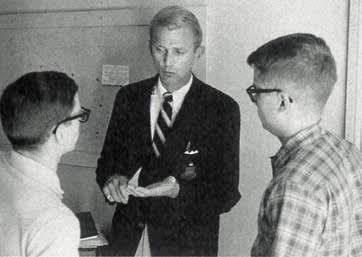
Kapp, you still recognized that you would not have gotten this elsewhere. He was special in treating us like that.” Reflecting, Wally said, “I say this all the time, but Durward’s mentorship when I was a young man changed the trajectory of my life.”
For Durward, mentorship was not about molding clones of himself; it was about lifting others high enough to thrive independently.
Former leadership consultant and Fraternity staff member Wally Wahlfeldt, Upsilon (Illinois-Urbana-Champaign), recalls what it felt like to be treated by Durward as more than just a recent graduate. “He treated you like you were an experienced adult,” Wally said. “Sure, technically I was an adult, but he treated me like I’d been out in the workforce for a while, and like I had an opinion and knowledge that was actually valuable, when I didn’t think I did at all.” That sort of validation, Wally said, wasn’t something he expected at that age, and something he knows many of his peers did not receive from their first bosses. “Even if you’d had no other job before working at Pi
For many young men like Wally, Durward’s mentorship didn’t end when the workday was over. Former staff member Stuart Hicks, Kappa (UNC-Chapel Hill), remembers Durward creating an all-encompassing environment of learning, structure and support for the young men who worked at the National Headquarters over the years. “He was part father, part boss,” said Stuart. “While he taught us a job for the Fraternity, he also taught us how to be men. Whether we were learning to dress professionally or make an accounting entry, he showed us everything.” The lessons extended beyond the office walls, too. “It was almost like we all lived together,” said Stuart. “Most of the time we’d go to the house and Connie would make us dinner. He created such an environment for us ‘kids,’ right out of school, and he was looking out for us. He kept us busy, probably kept us out of trouble and was always teaching us.”
With a carefully balanced blend of warmth and high expectations, Durward became the mentor many young men never realized they’d been missing, filling a gap in their lives that would make all the difference.
J. Ernest Johnson, Alpha Iota (Auburn), said, “There were a lot of lessons I learned from my father, but not many about the life I wanted
“I believe I know how to select good people, and also how to let them be their best. It is their shoulders on which I have stood.”
–DURWARD OWEN
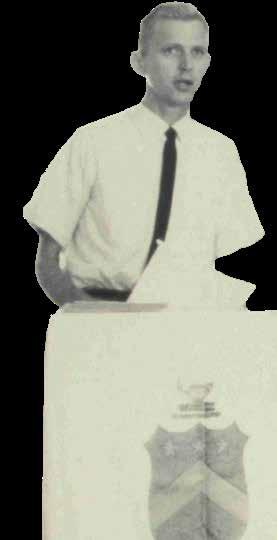

to lead, away from the farm and the Army and everything he’d known. That’s where Durward stepped in.” All along, Ernest realized that Durward was not in this role out of necessity, but out of a love for fraternity. “He could be working anywhere, he could have been CEO of a Fortune 500 company, but he chose to serve; by being a leader and an educator.”
Pi Kappa Phi is stronger because of him, but so is every space and every person touched by the men he believed in.
Ernest recalled one of Durward’s most formative lessons. “He would give you a project and let you run with it. I think he hired people who were smart enough to know that when they hit an obstacle, they shouldn’t just come back to him, they should try several things and learn what worked.” That level of trust changed how Ernest saw himself. “He didn’t get mad if you messed up, he’d talk you through it. Sometimes he’d laugh and say, ‘You got off easy this time,’ but he just expected you to grow from it. That’s what mentorship is, not protecting you from failure, but teaching you how to recover.”



During his 35-year tenure as Pi Kappa Phi’s chief executive officer, he employed 110 alumni, many of whom went on to serve the Fraternity through roles on the National Council or in other volunteer capacities.
Joe remembers that same dynamic. “We were given an awful lot of responsibility,” he said. “It was before it became fashionable to ‘fail up,’ and he was teaching us that most mistakes aren’t fatal.” Durward gave his young staff members room to fail, but the confidence to try again. “Whatever successes I’ve had as a father, husband, businessman, volunteer and philanthropist...I learned all of it from Durward,” said Joe. “I have a son,” he said, “and I’m imparting on him many of the lessons I learned from Durward. His impact will endure for generations.”
Hon. Tom Carter, Gamma Delta (Memphis), summed up Durward’s approach: “He made you feel like: I need you. You can make a difference. Go forth, do good. Make me proud.”
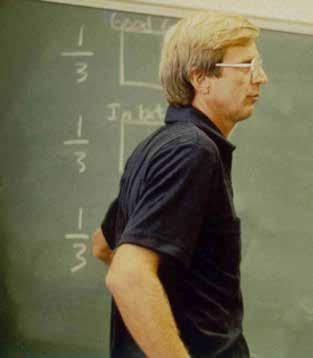
No number of stories about those he mentored will do justice to the impact he made throughout his life. That impact didn’t stop with the young men who he employed at the National Headquarters; it has spread to their families, their colleagues and their communities. Every lesson he taught, every confidence he instilled, every expectation he raised continues to ripple outward, showing up in boardrooms, classrooms and communities. Pi Kappa Phi is stronger because of him, but so is every space and every person touched by the men he believed in. Durward was a mentor who saw potential and cultivated it, not just for the sake of his Fraternity, but for the world beyond it.
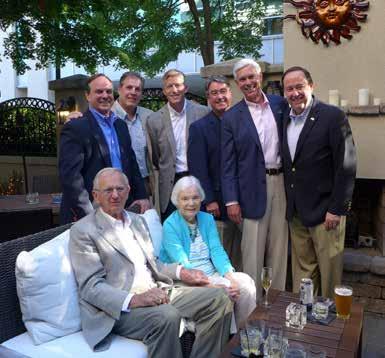
by Rachel Greene
What does it mean to be a visionary?
It’s seeing a world that doesn’t exist yet and believing in it anyway. It’s the ability to look at something unfinished or entirely absent and see what it could become. Visionaries don’t ask for permission; they just begin. And in doing so, they give others the courage to begin, too.
Durward didn’t see Pi Kappa Phi as a finished product; he saw it as a canvas, an evolving, living organization with a greater purpose still ahead. “Pi Kappa Phi was young, rough around the edges, but full of ideas,” said Hon. Tom Carter, Gamma Delta (Memphis). “Durward gave those ideas, like a national service project, a national housing fund and the fledgling Pi Kapp College program he inherited, structure. He created the scaffolding we all climbed.”
: VISIONARY
That scaffolding was built to elevate. Durward created a framework strong enough to support a growing brotherhood, yet flexible enough to let it rise. “He was always on the leading edge of change,” said Lonnie Strickland, Omicron (Alabama). To Durward, the edge wasn’t something to fear; it was where progress began.
He had the rare ability to see both the potential in people and the promise in ideas and then bring them together. “Durward was a force of nature,” said Dudley Woody, Xi (Roanoke). “He was the guiding light for Pi Kappa Phi and its entities.”
“Durward charted paths to do things before others ever dreamed of them,” said Stuart Hicks, Kappa (UNC-Chapel Hill). “He made us a leader in the fraternity world.”
His ideas were bold, but never reckless. Where others saw risk, he saw opportunity. Durward knew how to seize the moment, and how to bring the right people along with him. Jerry Brewer, Sigma (South Carolina), remembered one of those moments. “I met him at a truck stop off I-77 and he pulls a poster from the backseat and says, ‘What do you think of this?’ It was part of that campaign on alcohol and consent. I thought, ‘You’re really putting our name on that?’ But he walked me through it, and he was right.
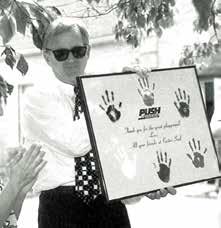
of like, he got you in the boat, and that boat just kept getting bigger, and with every person he brought on board, it got better, until we had the finest ship, ready to sail into Pi Kappa Phi’s future,” said Jerry.
His vision inspired others because it welcomed them in. “He had the vision that we could become the large, successful fraternity that we are today,” said Kelley Bergstrom, Alpha Omicron (Iowa State). “But more than that, he had a magnetism about him that helped others see potential. He could get a diverse group of people to work toward one common goal.”

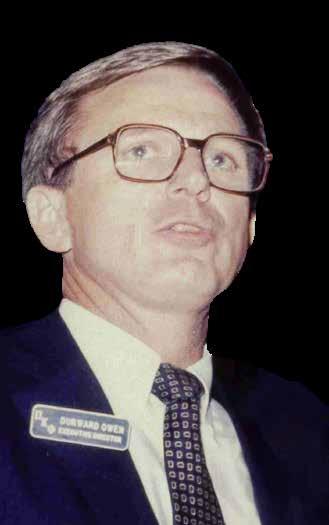
He nailed the timing and showed the world fraternities weren’t just about social life, we were about brotherhood and quality men.”
Durward never needed the spotlight; he just wanted to build something that mattered. “He intentionally surrounded himself with talent,” said Tom. “He wasn’t threatened by people who knew more than him or had a different skill set. He sought them out.” He found the people he knew could make his vision a reality, and he brought them together. “It’s kind
His vision inspired others because it welcomed them in.
Durward charted paths to do things before others ever dreamed of them. He made us a leader in the fraternity world.
Nowhere was that more evident than in the creation of P.U.S.H., the service initiative that would become The Ability Experience. Durward imagined a fraternity bound not just by brotherhood, but by service. His idea was simple: don’t just raise money, go out and meet the people you serve. Build with them. Live alongside them. Befriend them. That vision reshaped Pi Kappa Phi’s identity
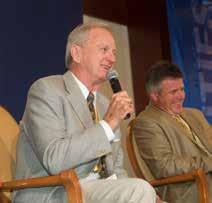
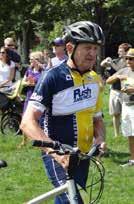
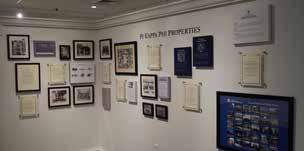
and has inspired thousands to take up the mantle of servant leadership.
“Starting our own philanthropy, that was all him,” said Wally Wahlfeldt, Upsilon (Illinois-Urbana-Champaign).
“His thought process was: ‘Why just send money?’ He wanted us to get involved and meet the people we were helping. It was revolutionary, and it’s been transformative.”
Phil Tappy, Lambda (Georgia), remembered early trips to the Western Carolina Center, where they worked with artist Thomas Sayre, Kappa (UNC-Chapel Hill), to build custom playgrounds for children with disabilities.
“Durward saw what Thomas was doing and said, ‘We’ve got to replicate this across the country.’ That was the vision, not just to build playgrounds, but to help people with disabilities live more independently.”
This vision reshaped the culture of Pi Kappa Phi. It challenged brothers to lead with empathy, to serve with intention and to seek purpose beyond themselves. What began as one man’s idea became a pillar of the Fraternity and a catalyst for generations of servant leaders.
“With his idea, we planted the seed,” said Tom, “and today, we continue to cultivate better fraternity men, and a better society, because of it.”
To Durward, enacting his vision was never about recognition. It was
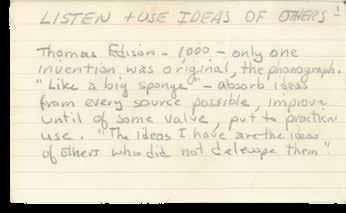
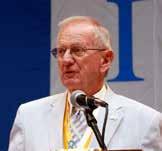
about possibility. The possibility of what a fraternity could stand for. The possibility that service could strengthen brotherhood. The possibility that young men, given trust and guidance, could grow into leaders who change the world.
Though Durward has entered the Chapter Eternal, his vision lives on, not only in what he built, but in the mindset he instilled: to see potential where others see limits. To act when others hesitate. And to stay grounded in purpose, no matter how bold the dream.
He wanted us to get involved and meet the people we were helping. It was revolutionary, and it’s been transformative.
So, what does it mean to be a visionary?
It means seeing the invisible and building it anyway. It means shaping the future so clearly that others can confidently follow. And perhaps above all, it means living a life that reminds the rest of us that we can do the same.
Durward didn’t just meet the definition of a visionary. He lived it. And in doing so, he left Pi Kappa Phi a brotherhood strong enough to carry that vision forward into every generation.
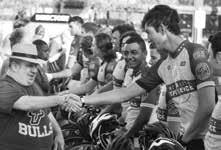
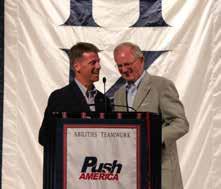
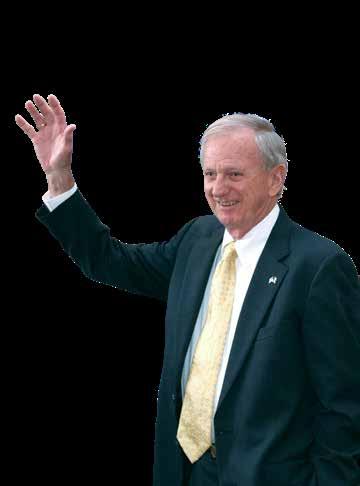

My Best Founders’Day Ever
by Durward Owen,
originally
published
in The Brotherhood, History of Pi Kappa Phi 1904-2004
It was 8 a.m. on December 10, 1995, and the weather looked as if it was going to be a cold but great day to work outside. Bill Jackson, Delta Lambda (UNC-Charlotte) ‘75, Jonathan Scott, Beta Tau (Valdosta State) ’86 and Stuart Volker, Epsilon Nu (Cal StateSacramento) ‘83, were already there. Dave Simas, Gamma Beta (Old Dominion) ‘88, would arrive in about 30 minutes. All four were Pi Kappa Phi alumni.
The unimaginative white clapboard house was in terribly bad repair, while the yard and surroundings were even worse. When it rained, the yard and drive would be a sea of mud. The neighborhood was equally depressing.
At midday, the neighborhood was made very real when a police officer walked up. He had a picture and wanted to know if we had seen the man, as he was wanted for murder and had last been seen nearby.
From the porch, a rickety set of steps led directly to the front yard, which was dirt and little grass. Off to the left were two long, narrow strips of metal, which were drawn up and lying on the porch itself at this time.
Shortly, I was to learn that these two thin metal strips constituted a ramp that could be used by a paraplegic, with at least two able-bodied people helping, to get him and his motor-driven wheelchair from the porch to the yard itself. There was then 30 feet of dirt and debris to navigate before arriving at the equally potentially muddy driveway and another 20 feet to the road itself. There was no sidewalk.
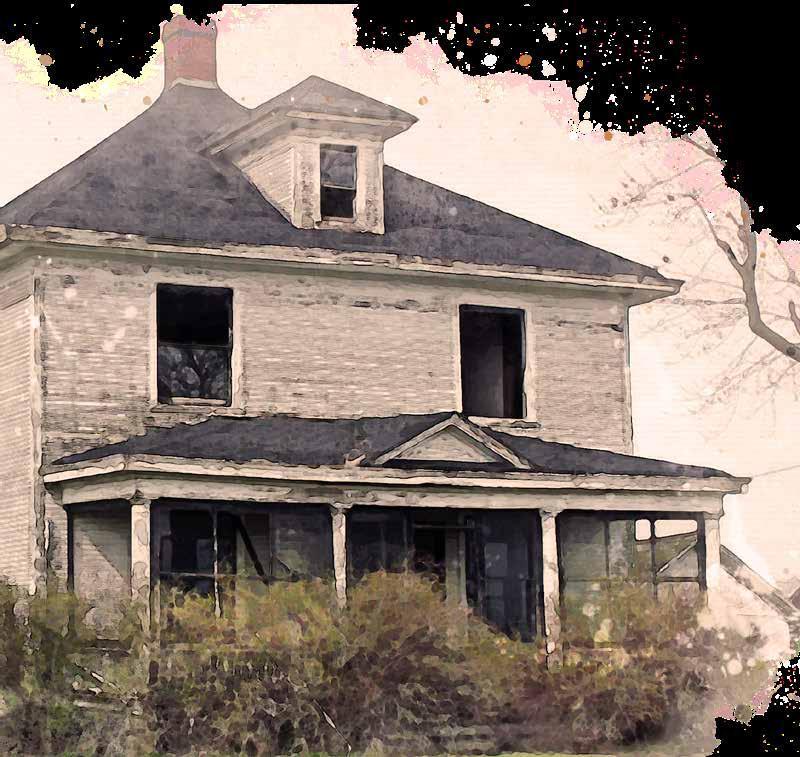
This young 14-year-old boy was totally dependent on the above for any entrance and departure from his home. Just getting to the street on the morning of a school day, the days he could get there, and returning that evening was a momentous endeavor. It often required more people than were available.
Volker already had the compressor running, and therefore, the automatic nailer was ready to go. Power was extended into the house to operate the power saw. A local supplier had delivered our small truckload of treated lumber of various proportions, as well as 20 bags of concrete mix, all paid for by PUSH America (now The Ability Experience) with funds raised by our student chapters. Noticeably facing me was a post-hole digger.
I quickly found that even though this was my second ramp for Pi Kappa Phi and PUSH America, I still had skills only for basic manual labor. I was to find out later that Volker and Jackson were adamant that I was not to use any of the machinery, especially the power-driven nailing device. Perhaps they would allow me to use a handheld hammer.
The lady of the house had some packaged doughnuts and instant coffee on a small table on the porch. That was good enough to start the day, considering how much work we had to do and who we were doing it for.
At noon, Scott was sent off to get lunch from Burger King, and although it was only a short distance away, he avoided manual labor for at least an hour and a half before he finally returned for the lunch urgently needed by the other four of us. At 4 p.m., we had completed a ramp designed by Bill Jackson, extending 10 feet from the porch, where a turning platform was constructed, following a 90-degree angle to the left, carrying the ramp to within four feet of the driveway. It was late, and the sun was fading this December afternoon, and it was determined that two of us would return the following week and prepare the concrete platform, which would be at the end of the ramp leading to the drive.
The time had come. A 14-year-old client with a disability came out of his front door, bundled up, for this was not a warm day. With his arms strapped to the electronic wheelchair, he, for the first
time, was able to go from his living room out onto his porch and continued to the driveway under his own power, under his own control and with no one else needed to help him. As if he had been doing it for years, he turned his chair 360 degrees and returned back to his living room, again unattended. That small degree of independence brought forth from him a smile from ear to ear and a brilliant color of enthusiasm to his chubby cheeks. We each had a tear in each eye to match those in his and his mother’s.
There had been 44 December 10ths in my life since the day I was initiated into Pi Kappa Phi Fraternity. As I was driving away from this very poor neighborhood, from this hardly adequate home, I contemplated the previous 43 Founders’ Day experiences. December 10 had brought about formal dinners in tuxedos, barbecues at lake locations, elaborate dances with wives and dates, fancy restaurants and expensive hotels and other environments too many to recount.
I realized in a flash that I had just experienced my finest Pi Kappa Phi Founders’ Day celebration ever.
I realized in a flash that I had just experienced my finest Pi Kappa Phi Founders’ Day celebration ever. Barring none, it exceeded all!
In my vision of the moment, I could easily see Founder Harry Mixson looking down and, with a broad, infectious smile, toasting the event with a glass of bourbon. I could see Founder Simon Fogarty waxing eloquently in the ethereal experience of the moment, substantiated by quotes from bards of the past. And, that one who was the prime mover of it all, Founder Alex Kroeg, seemed to shout out, “By God, I think they finally got it!”
We had!

Brotherhood is an easy word to throw around in fraternity, but a harder one to live. It’s more than a shared badge, creed or handshake. At its core, brotherhood is about relationships; deep, genuine and enduring ones. It’s being known, being counted on and being loved, not for your accomplishments or your titles, but for who you are. It’s remembering a birthday, knowing when to call someone on the phone and showing up when it matters most.
Before he was Pi Kappa Phi’s chief executive officer, before he was Mr. Pi Kappa Phi and before he was synonymous with the word fraternity, Durward Owen was simply a brother.
Durward joined Pi Kappa Phi at Roanoke College looking for the bond of brotherhood, but in the end, he was the one who taught the rest of the Fraternity what brotherhood, at its very best, could be.
Chief Executive Officer Jake Henderson, Beta Theta (Arizona). “That’s how he built the Fraternity: one personal connection at a time.”
Each one of those many connections, and there were hundreds, was intentional. They weren’t driven by obligation or agenda; they came from a place of care. “He was about as good a friend as anybody could have,” said Phil Tappy, Lambda (Georgia). “He cared about everybody that he ran into, and he put in the work to stay in touch. That’s something a lot of people don’t do, but he did it because he cared.”
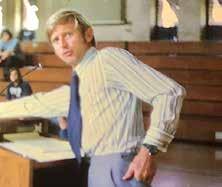
opened it, Durward asked “Who are you?” with a serious, straight face. Confused, Glenn started to answer until Durward finally broke into a grin and said, “Well, friends don’t come to the front door.”
: BROTHER
by Rachel Greene

He didn’t do that with grand speeches or proclamations preaching about the meaning of brotherhood; he did it in the way he lived his life.
“Durward anchored his life in loyalty,” said Joe Brady, Epsilon Omicron (Villanova). “And he lived it every day.”
Durward didn’t just know a lot of people; he built relationships, and then treated them like they mattered, because they did. “Relationships were his priority,” said
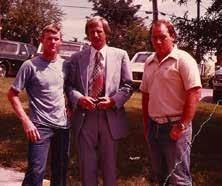
That’s how he built the Fraternity: one personal connection at a time.
To know Durward was to feel like family. Glenn Aspinwall, Gamma Kappa (Georgia Southern), remembered the way he and his fellow leadership consultants would be greeted at the Owen home: “When we’d come visit, he’d say to Connie, ‘One of your children are here.’” Being close enough to be treated like family meant being expected to act like family, too. Glenn once made the mistake of knocking on the front door, despite always having gone to the back door before. When he
Other staff members shared that sentiment, and the bond Durward cultivated among his employees. “We were experiencing an entirely new chapter of Pi Kappa Phi,” said Stuart Hicks, Kappa (UNC-Chapel Hill). “We were from a whole lot of different chapters, but he made staff feel like a chapter in itself, and he gave us those bonds of brotherhood unlike any other.”
Even through disagreements and differences in ideology, he found common ground and formed lasting relationships. Phil and Durward first interacted with one another when Phil was an undergraduate who had just taken over as his chapter’s historian and created a newsletter filled with party stories and toga pictures. It did not meet Durward’s expectations, so he called Phil up and told him. “Nobody likes criticism,” said Phil, “And I was working harder in my chapter than anybody, but after a while I realized he was right. I thought, if I were an alumnus, is this what I would be proud to see? He was right. He usually was.” That was the start of an unlikely friendship. When Phil first moved to Charlotte, Durward introduced him to everyone in town, invited him to join his Rotary club and took him under his wing,
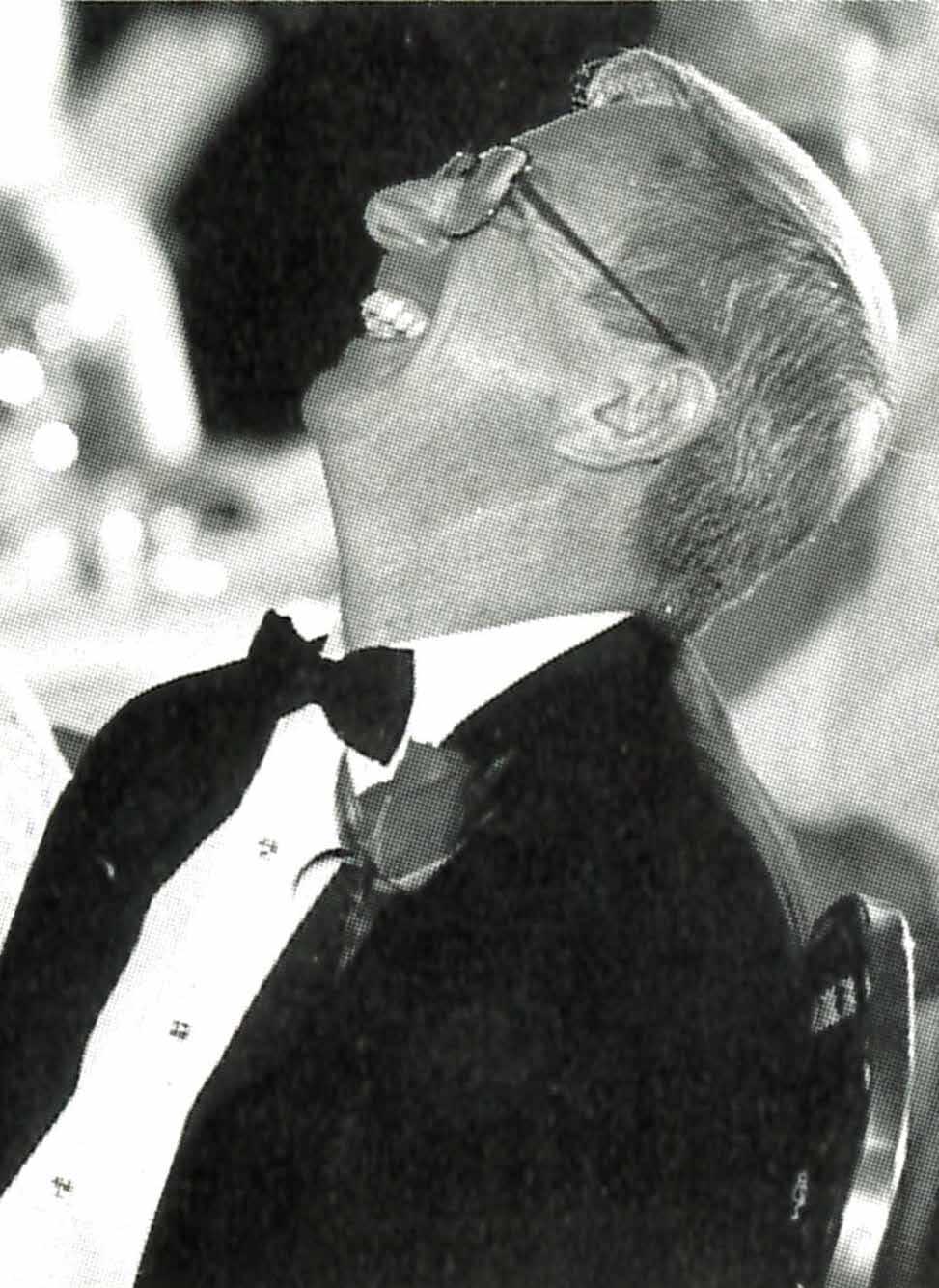
“What is fraternity? In one word, fraternity would have to be defined as people. For, like so many things in life, without people, you have nothing.”
-DURWARD OWEN
(continued from page 26) giving him community in an unfamiliar place. “We didn’t always see eye to eye on things,” said Phil. “In fact, there were many things we completely disagreed on, but we always got along anyways. We went to breakfast together for years. We were breakfast buddies for a long, long time.”
That kind of bond is rare in life, but it was typical for Durward.
He had a way of showing up for people in both their big, public moments, and in the small, less noticeable ones. “Durward and Connie were very kind to my wife Lisa and me when we were house hunting in Charlotte,” Phil recalled. “We spent the night at their place, and I’ll never forget it. Lisa wasn’t feeling great that morning, and Connie looked at her and said, ‘Lisa, you’re pregnant.’ Unbeknownst to us, she was. Durward always loved that story and being part of that moment.”
At times, Durward’s love came through laughter. Ed Bennett, Xi (Roanoke), remembered a moment from his early days of fatherhood: “Durward and Connie drove over to my house. This was the first time we were leaving our baby daughter with a sitter, and Durward says to the sitter, ‘Just give her a dirty sock and set her in the closet and she’ll be fine.’ Still today, I think of Durward as one of my very best friends.”
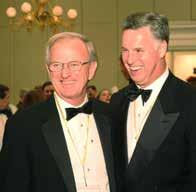
He loved people enough to joke with them, to lighten the weight of life, and remind others that, even in the chaos, joy was essential. And then, there were his hugs.
“When Durward hugged you, it was a real hug,” said J. Ernest Johnson, Alpha Iota (Auburn). “It wasn’t some ‘bro’ hug or side hug. You always felt like, man, this guy’s glad to see me.”
Sometimes, that affection surprised people. “I was leaving for Atlanta as a consultant,” said Wally Wahlfeldt, Upsilon (Illinois-Urbana-Champaign). “Durward went to give me a hug, and I kind of stiffened up. I didn’t hug men. And he goes, ‘It’s all right to give another man a hug, you know.’ And he made me give him a hug.” Wally never forgot it. “I make a point to hug my friends all the time now.”
“Even if later, we are occupied with important things, even if we fall into misfortune, still let us remember how good it was here once, where we were all together, united by a good and kind feeling which made us, perhaps a little better than we were.”
- Dostoevsky

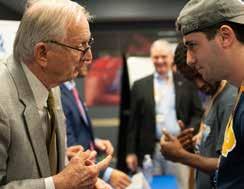
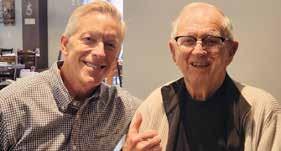
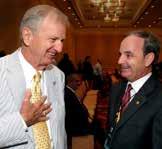
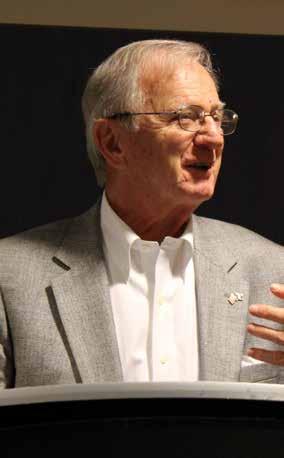
Unapologetically, the way Durward showed his care gave others the permission to care, to be present and to love out loud. To fully live brotherhood.
Durward had a gift for keeping that trust alive and building connections into what would otherwise be everyday moments. “We always had memorable ski trips,” recalled Kelly Bergstrom, Alpha Omicron (Iowa State). “You’re staying in the same building for a week, and you really get to know people. That was another genius of Durward, getting people together in that kind of setting. It kept you interested in doing things for the Fraternity.”
He knew that what kept people coming back and serving the Fraternity were the unplanned moments, the laughter around the dinner table and the long talks after days spent bonding.
“Everything I do for the Fraternity is because I owe it to him,” said Wally. “He inspired so many of us to serve on boards, write the checks and just show up for Pi Kappa Phi.”
Through intentional relationships, Durward created a culture where men could show up for not just the Fraternity, but each other. He inspired them to stay in touch, give real hugs and call each other without needing a reason.
From Durward Owen’s archives.
Forever, a Pi Kappa Phi brother.
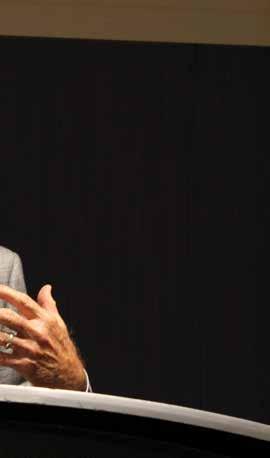
His legacy is in the moments he shared and the relationships he formed. He once said, “I got to where I am by standing on the shoulders of giants,” and then gestured to the audience and said, “You’re the giants.”
But in reality, he was the giant. All Pi Kappa Phi brothers stand on his shoulders. Now, it’s your turn.
Send the cards.
Make the calls.
Give the hug (the real one).
Be a brother, like he was.
For Durward.
Forever, a Pi Kappa Phi brother.
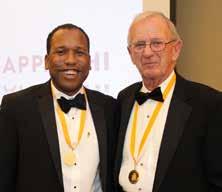
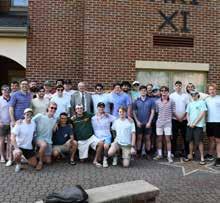
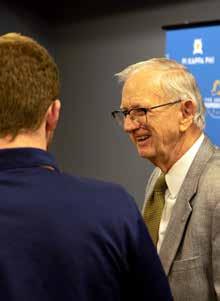
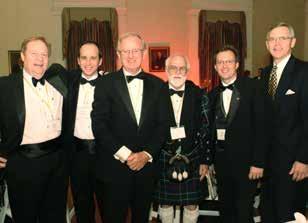
“BROTHER”
“The first entrance to the Pi Kapp house
Discovery of friendliness
Sincerity
True spirit of brotherhood
Not a homogeneous conforming group
But individuals
Each with sacred ideas
Ideals
Thinking for self
And yet even though individuals
Possessed of a desire to work together
Brothers....”
An excerpt from a poem written by undergraduate brother Philip Campbell, Beta Eta (Florida State), at the inaugural Pi Kapp College, hosted in Sumter, South Carolina, from August 30 to September 2, 1959, published in the November 1959 issue of the Star & Lamp.
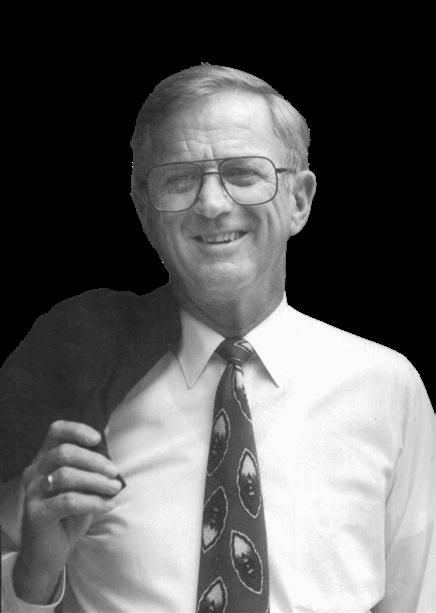


FROM THE THE ARCHIVES OF DURWARD W. OWEN
Curated by Rachel Greene
Throughout his life, Durward Owen carefully documented his thoughts, his correspondence and pivotal moments in Pi Kappa Phi’s history. Housed today in a set of archival binders in the National Headquarters vault, these records transport us back in time and guide us through Durward’s years of influence on Pi Kappa Phi. From personal keepsakes to foundational documents, these artifacts are a rare glimpse into the mind and heart of a man whose legacy continues to shape this Fraternity.
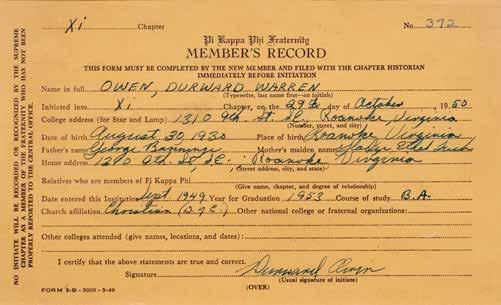
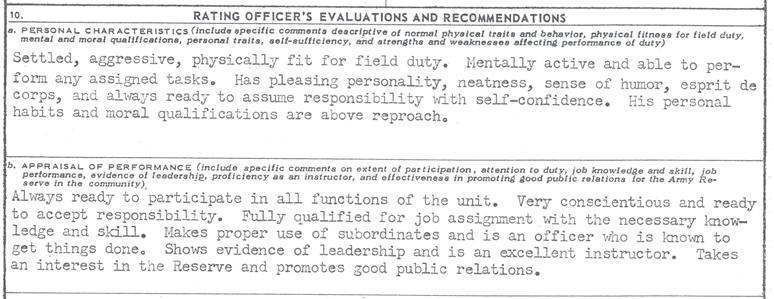


What began as a young man’s initiation into a struggling fraternity at Roanoke College would become his lifelong calling.
After becoming a brother, but before his professional life with Pi Kappa Phi began, Durward answered another calling; serving his country in both the Army and Air Force. In uniform, he demonstrated a propensity for leadership and mentorship, which only grew in his years leading the Fraternity.
THE VAULT
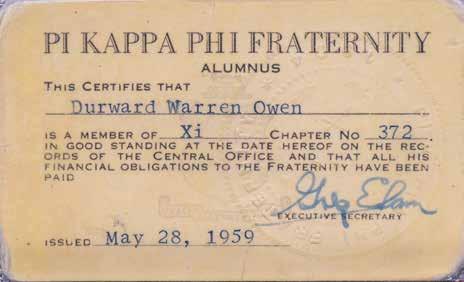
When offered the role of executive secretary, Durward had a balance to square away with the Fraternity from his undergraduate years. After paying his bill, Durward became an alumnus in good standing on May 28, 1959, just 34 days before assuming his post.
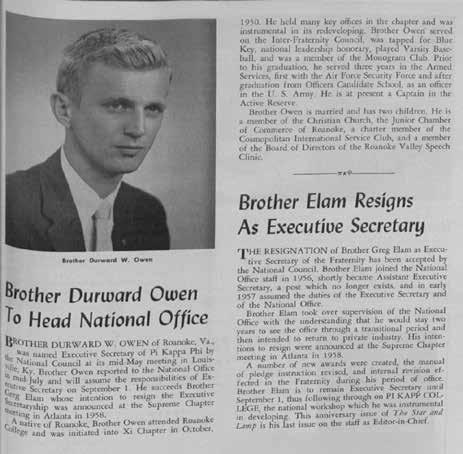


Greg Elam, Beta (Presbyterian), had taken over as executive secretary in 1957, committing to two years of service. When this announcement was made, Durward also planned on serving two years. Few could have predicted that no other executive secretary or director would be named for the next 35 years.
WORDS FROM BROTHERS IN
The words that follow come from the Pi Kappa Phi brothers whose earthly journeys ended before Durward’s, but whose reflections on him continue to speak volumes. In their own voices, they captured what so many felt, and still feel for Durward Owen: deep respect, heartfelt gratitude and unwavering affection.
From the Chapter Eternal, these are reminders of a brotherhood that endures for life, and beyond. In honoring Durward, these brothers remind us of the impact one man can have across generations, and the kind of legacy that lives on in the hearts of others.
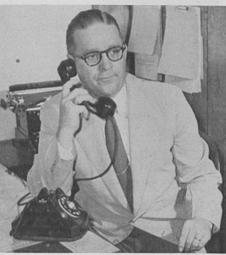
MUNSEY MOORE
XI (ROANOKE)
BERNIE JONES
ALPHA (COLLEGE OF CHARLESTON)
Before Durward and Greg Elam, there was Bernie Jones, who was the executive secretary while Durward was an undergraduate member of the Xi Chapter.
“It would be nice to say that I saw in Durward Owen that small flame which would grow into a roaring fire and result in a national fraternity par excellence. Alas, I was only hunting for one young man to develop one chapter. I have reflected upon this many times through the years, and I have come to the conclusion that the genesis of any great movement is a small flame inside one person. I am proud to be his friend and to have him as my friend.”
While countless Pi Kappa Phi brothers came to love Durward during his time as executive director, fewer shared Xi Chapter with him. Munsey Moore was one of those men.
“Durward, you have always treated me like a member of your family, but I am sure there are thousands of others who feel exactly as I do. Yes Durward, you are that special individual that has “climbed every mountain and forded every stream” of life and has touched the lives of thousands and made our world a better place to live. When you join the Chapter Eternal, the God of Pi Kappa Phi will say, ‘well done, good and faithful servant.’ I shall always treasure my years with you as an undergraduate, but most of all I will remember my lifetime of knowing you as one of the most special, kindest, wonderful men God has put on this earth.”
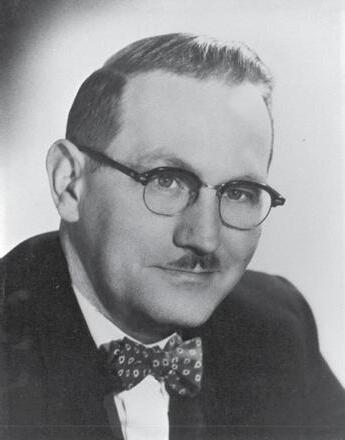
KIM JEPSON
ALPHA THETA (MICHIGAN STATE)
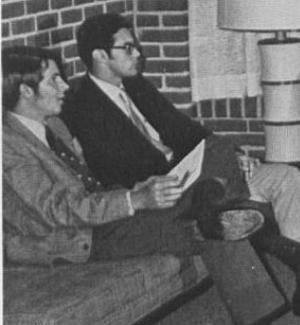
A past National President of Pi Kappa Phi, Kim Jepson and Durward worked closely together. Durward wrote of Kim, “he was more like a sibling or a close friend, than my employer, more so than any other alumnus except Ted Scharfenstein.”
“Dear Durward, how can I tell you the depth of affection and appreciation I feel for you without becoming maudlin? Only rarely, if ever, does a man have the privilege of making a true friend and at the same time working with him to accomplish some little good. My relationship with you has been that kind of wonderful experience. I sense that you know how I feel about it without becoming pitiful by trying to put it in words. So, I’ll simply say, ‘Thanks, Brother. When you need me, I’ll be in your corner.’”
THE CHAPTER ETERNAL
WILLIAM “BILL” FINNEY
GAMMA XI (GEORGIA SOUTHWESTERN)
A dear friend and brother to Durward, who wrote that Bill Finney “probably had the second most supportive spouse in all of Pi Kappa Phi,” referring to his devoted wife, Jane. Bill and Jane became great friends to Durward and Connie.
“My most memorable experience in Pi Kappa Phi was the day my son came home from the hospital after being born. The first non-family member to visit us was Durward Owen. He rang the doorbell, and when I opened the door, he was standing there holding a red rose and a miniature Pi Kappa Phi jersey. He came in, and we all sat down on the sofa and had a wonderful time reminiscing about things. The fraternity has been a big part of our whole family life for many years. Durward, thank you for making me a better person. I love you, and you have been a great part of my family’s life.”
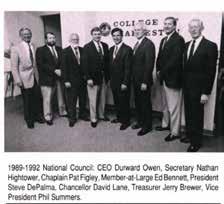
PHILLIP M. SUMMERS
ALPHA PSI
(INDIANA)
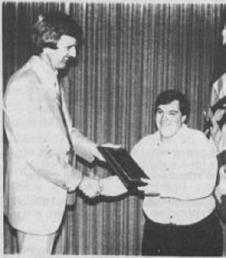
Through his tenure as National President, Phillip Summers and his wife Pat developed strong friendships with Durward and Connie, built on mutual respect and love for Pi Kappa Phi.
“Dear Durward, there are very few opportunities to meet and know ‘great people.’ We have been honored to know you and Connie, who are two of the most unique, caring and revered people who deserve the title of being ‘great.’ I continue to work with undergraduate members and the Greek community because we never know who the next ‘Durward’ might be. Many, many thanks for your leadership, labor and love of Pi Kappa Phi. We will never forget the wonderful moments and times we have shared with you. Our many memories will keep alive our feelings and friendship for you both.
We never know our destiny, but mine has been blessed by you!”
TED SCHARFENSTEIN
BETA BETA (FLORIDA SOUTHERN)
Outside of Connie, Ted was Durward’s best friend and most trusted confidant.
“Durward, I greatly appreciate the friendship we have developed, which has become an entire family-to-family one. Please accept my thanks for this as I reflect on the many values of Pi Kappa Phi to me and my family.
Too often in the concentration upon the tangibles of our work we forget to think of the individuals who really make it all possible. It is now that I want to take a moment to share with you my thanks, my gratitude, to you for what you have done and continue to do. I know, I have been there for many years to see those contributions, to share a little with the griefs, the concerns. And, I know with great appreciation those personal sacrifices and infringements upon your family. Connie is an angel! Not only has she and the family spent countless hours without you, she even comes to our aide at the office, as do your children.
Thanks is not enough, Durward. But, until you are better rewarded, please understand this one old-timer’s appreciation.”
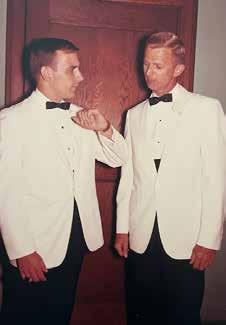
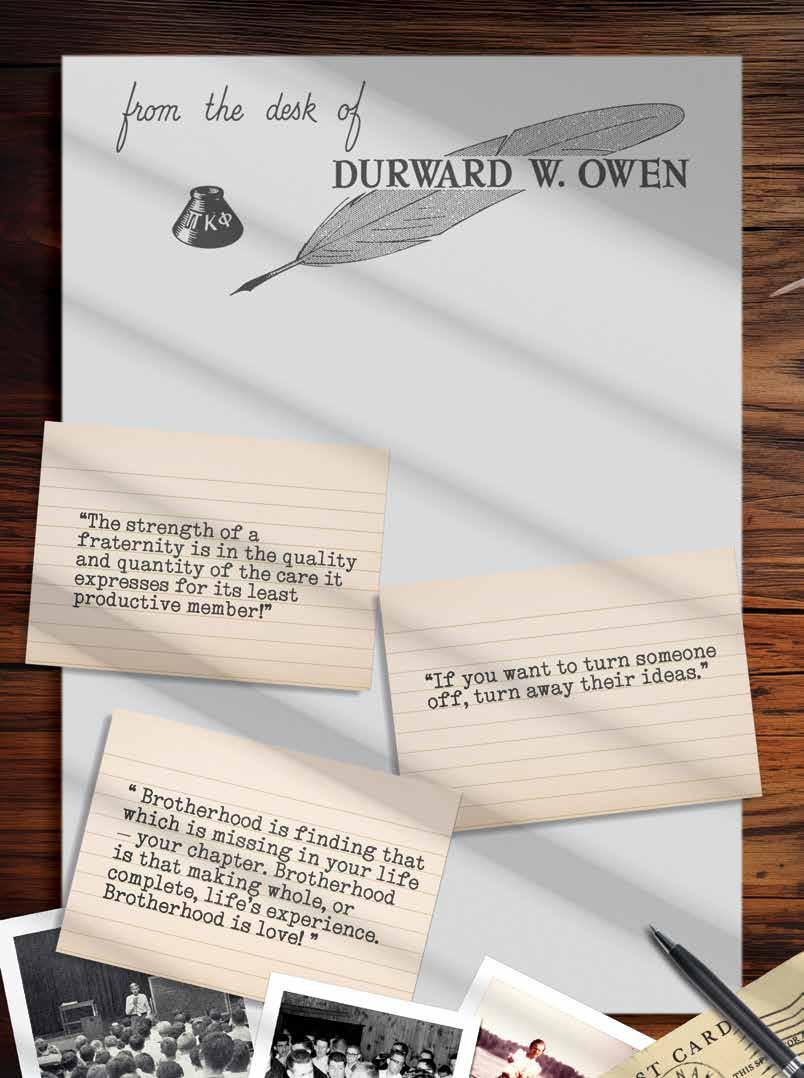
Tucked inside boxes, slipped between binder pages and catalogued methodically, Durward collected his thoughts and words the way a historian collects artifacts. More than just pieces of paper, these were the words Durward returned to, philosophies he lived by and sometimes, the words he was gracious enough to share with others.
Some are handwritten on worn index cards, saved across decades. Others were spoken at Fraternity events or published in the Star & Lamp. Together, these preserved words paint a portrait of a leader whose wisdom shaped not only a Fraternity, but generations of brothers.
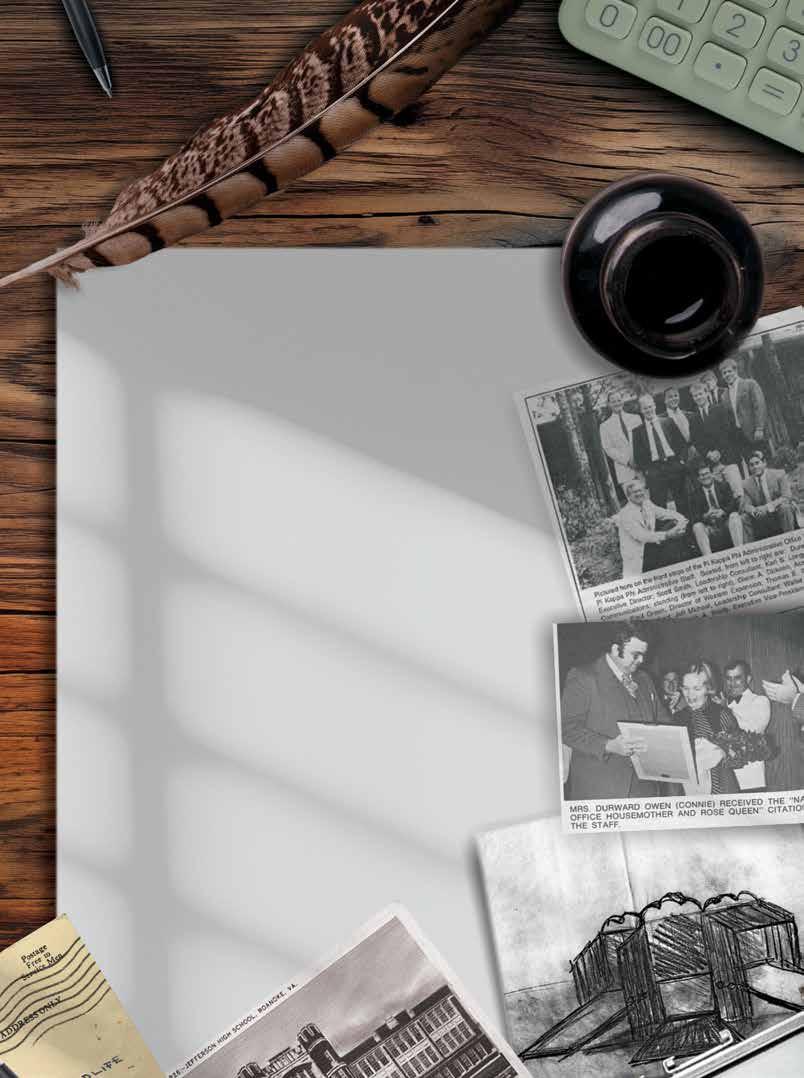
WHAT I’VE LEARNED, WHAT I LEAVE BEHIND
In his final interview as executive director in 1994, Durward reflected on the people, moments and lessons that shaped his decades of service to Pi Kappa Phi. These remarks offer a window into his humility, humor and humanity; a man who never stopped believing in the potential of every brother.
Q: On the member Pi Kappa Phi should be most proud of
A: “The newest initiate, because in him there is hope of things better yet to come.”
Q: On managing the Fraternity while Simon Fogarty and Harry Mixson were alive
A: “They made no effort to direct the Fraternity... I loved them dearly and was blessed to have had the opportunity of knowing them. However, my secret is, I would like to have known Alex Kroeg. If he had been around, the two of us would have made a wonderful team.”
Q: On what Pi Kappa Phi gave him in return for his 35 years of service
A: “Leadership skills. Friends. Management skills. Friends. Self-respect and confidence. Friends. Nationwide network. Friends. Changed (improved) attitude about people with disabilities. Friends. Better understanding of human behavior. Friends.”
Above: Once marking his thoughtful letters and the birthday cards he sent without fail, Durward Owen’s signature now marks the pages of this commemorative issue.
“
NOW AS I
GO,
SO WILL GO ON
PI
KAPPA
PHI.

THAT IS THE WAY IT SHOULD BE!
AS PI KAPPA PHI GOES, ‘MAY
GOD
GO WITH YOU. MAY GOD GO BEFORE YOU TO GUIDE YOU; BEHIND YOU TO GUARD YOU; BENEATH YOU TO UPHOLD YOU; ABOVE YOU TO INSPIRE YOU; BESIDE YOU TO BEFRIEND YOU; AND WITHIN YOU TO GIVE YOU PEACE.’ AMEN
”
